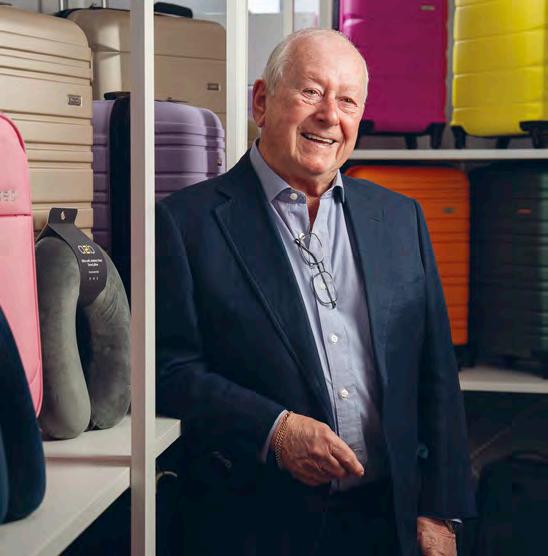

OPENCAST


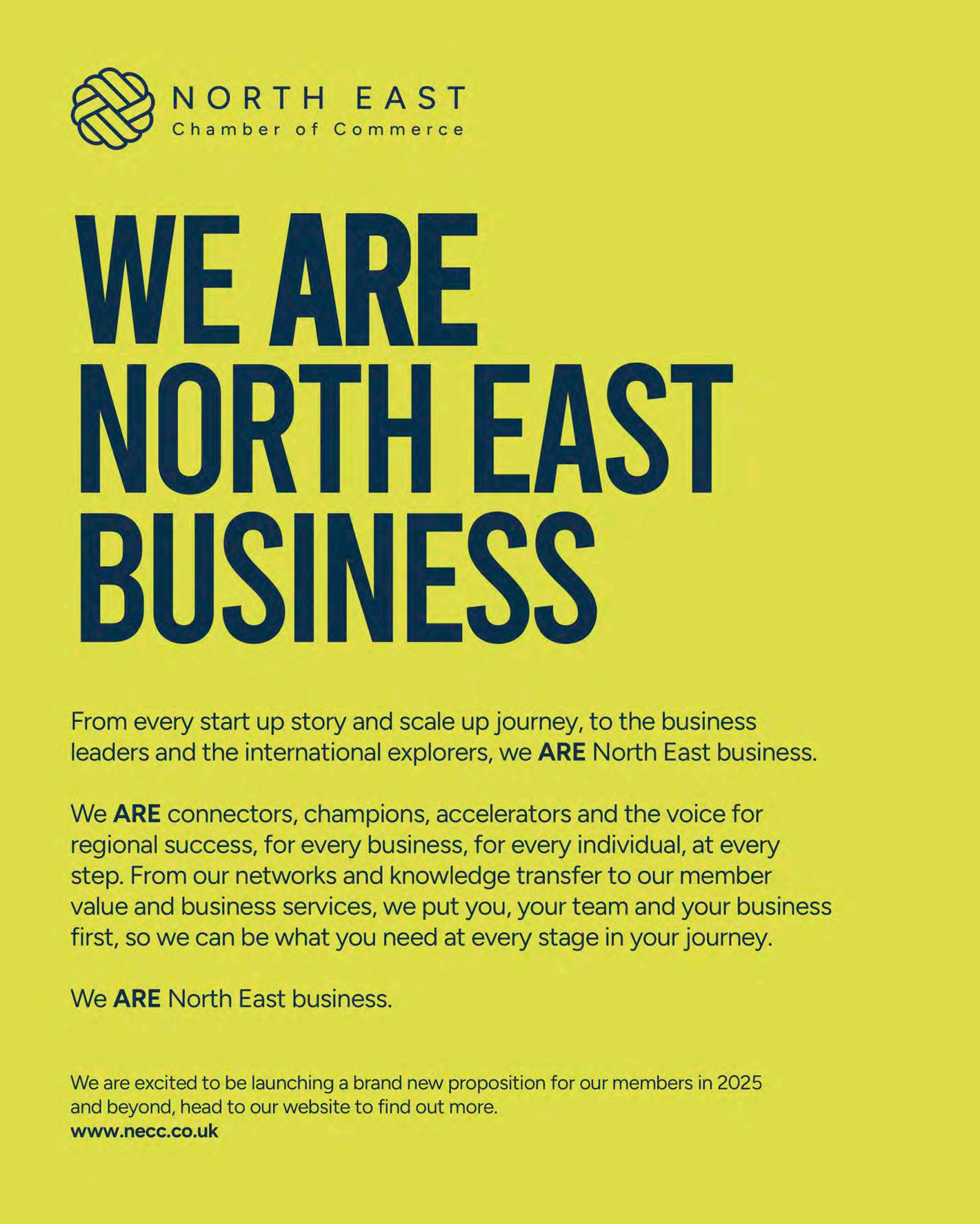

NET 250
The region’s leading businesses have been honoured at The NET 250 ceremony.

Talking Point
As momentum builds around efforts to accelerate the UK’s green energy transition, Port of Tyne and Teesport operator PD Ports are pressing ahead with multi-million-pound blueprints aimed at shaping a more sustainable future.


Out of office
In the latest instalment of a series exploring businesspeople’s lives beyond the workplace, Steven Hugill speaks to Jason Oakes, partnership director at Houghton-leSpring-based PHS. Here, the former Newcastle Falcons player reflects on his professional rugby career, his passion for coaching the next generation and the sport’s lasting lessons that continue to shape his working life.

CREDITS
HEAD OFFICE
The Stamp Exchange, 7 Westgate Road, Newcastle, NE1 1SA
All rights reserved. Reproduction, in whole or in part without written permission, is strictly prohibited.
CIRCULATION:
To confirm our circulation, please contact Chris Westwood, of Buxton Press, via chriswestwood@buxtonpress.com
To amend your mailing address or remove yourself from our mailing list contact hello@netimesmagazine.co.uk
CONTACT:
@NETimesmagazine www.netimesmagazine.co.uk
PHOTOGRAPHY:
All photos taken by N staff are copyright North East Times Magazine Ltd, and are taken solely for use in N or products published by North East Times Magazine Ltd.
If you wish to use or publish a photograph taken for N, please contact pete@netimesmagazine.co.uk
Editor Steven Hugill steven@netimesmagazine.co.uk
Business journalist
Colin Young T: 07808 974 533 colin@netimesmagazine.co.uk
Business development director
John Duns T: 07920 152 523 john@netimesmagazine.co.uk
Creative & managing director
Peter Mallon T: 07590 064 800 pete@netimesmagazine.co.uk
Partnership & marketing manager Sarah Law sarah@netimesmagazine.co.uk
STRATEGIC PARTNERS


ADVERTISING CHARGES:
There is a £25 charge for every set of amendments, following the first initial set of amendments, which is free of charge for adverts designed by North East Times Magazine Ltd.
CANCELLATIONS:
If an advert is cancelled by the booker within a seven day period prior to our print deadline, the advert will be charged in full, plus VAT.
EDITORIAL:
Editorial must be received by the 9th of the month or no responsibility is accepted for errors. The opinions expressed in this issue are not necessarily the views held by North East Times Magazine Ltd.
ADVERTISEMENTS:
Although every care is taken to ensure accuracy, the publishers regret that they cannot accept responsibility for loss or damage caused by an error in the printing or damage to, loss of artwork, transparencies or photos.
COMPLAINTS:
Regarding advertisements will only be considered for up to a week after publication. Advertising must be received by the 12th of the month. No responsibility is accepted for errors.
Digital marketing consultant
Sian Anderson sian@netimesmagazine.co.uk
Finance manager Jill Brown jill@netimesmagazine.co.uk
Event managers Lesley Hampson lesley@netimesmagazine.co.uk
Dawn Owens dawn@netimesmagazine.co.uk
PRINT:
N is printed by Buxton Press Limited, the multi awardwinning printer based in Buxton, Derbyshire, which specialises in the sheetfed lithographic printing of magazines, brochures and programmes.
N is produced using vegetable-based inks combined with advanced innovative chemical-free plate and Heidelberg press technology and is printed on paper sourced from well-managed, sustainable forests.
Buxton Press is certified to ISO14001 and ISO9001 Standards, holds FSC® and PEFC Chain of Custody certification, offers Carbon Balancing via The World Land Trust and is currently working towards becoming a Carbon Balanced Printer.

Filmography Andrew Lowe andrew@netimesmagazine.co.uk
Paul Geist paul.geist.photo@gmail.com
Photography in this issue: Mike Sreenan www.michaelsreenan.com
Andrew Lowe andrew@netimesmagazine.co.uk
Jamie Haslam www.roamwithus.co.uk
Angela Carrington and Pawel Gajek www.thisisthebiggerpicture.co.uk
Matt Taylor www.mtcreative.co.uk



@2025 Published by North East Times Magazine Ltd.
Contributors:
Vicki Henderson
Eve Halliday
Chris Carroll
Graham Melroy
Duncan Hedley
Frans Calje
Matt Beeton
Bianca Robinson
Jason Oakes
Syd Snowball

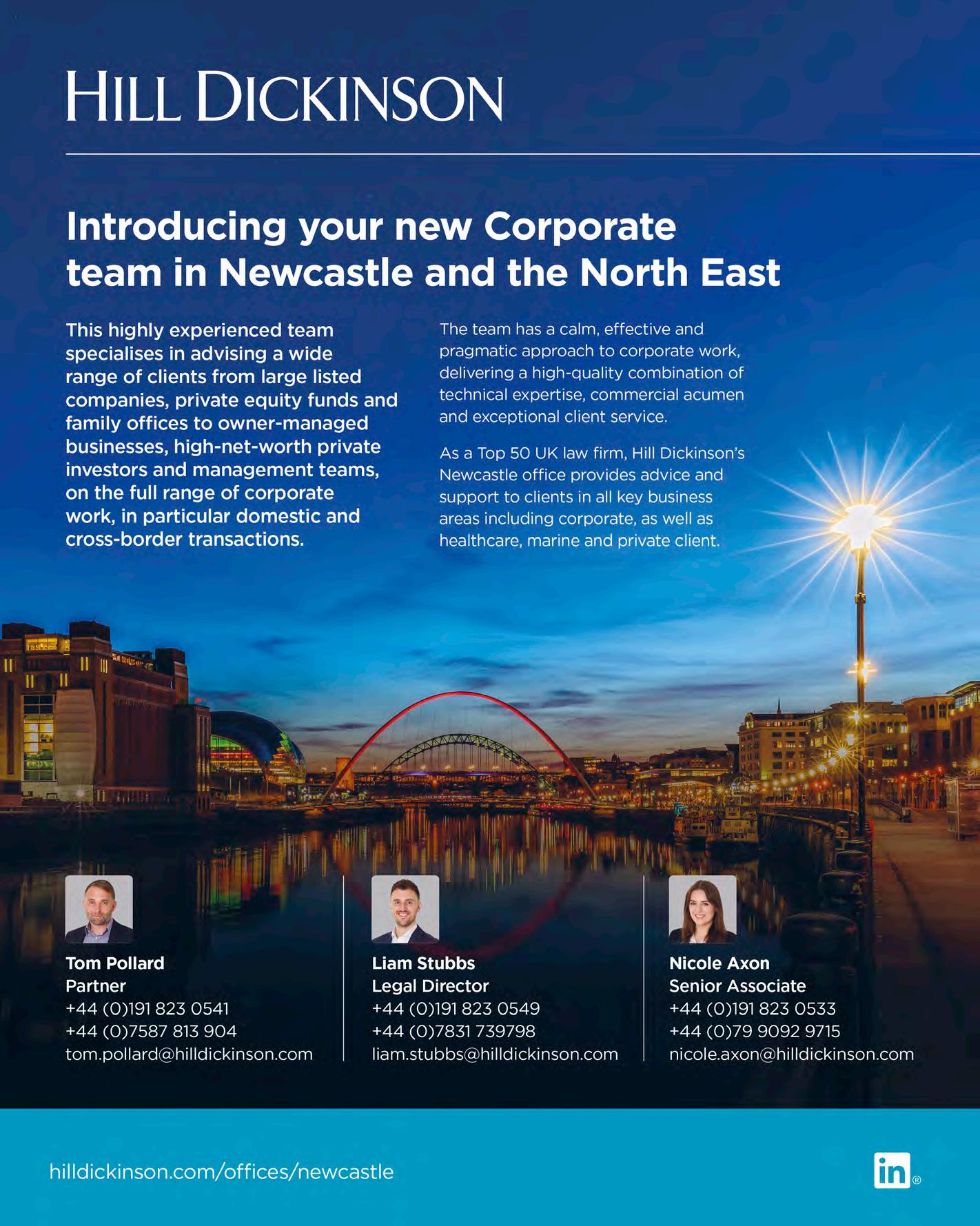
Editor’s word
With the Government having spent the pre-recess period rolling out muchanticipated industrial and economic blueprints, Steven Hugill looks at the plans and why they must deliver for the North East…
Hello and welcome to the latest edition of N magazine.
How are you holding up?
Given the recent flurry of Government policy announcements, not to mention U-turns (I’ll use the phrase, even if Downing Street’s communications team prefers a softer intonation) and the geopolitical fallout from ongoing global conflicts, you’d be forgiven for feeling in need of a break.
Relief, then, for the summer holiday period, which provides some time to reflect as the dust settles.
And there’s plenty to ponder.
The Government’s much-anticipated industrial strategy, alongside its sister ten-year infrastructure strategy and spending review, at last provides a steer on its longer-term priorities.
For the North East, the blueprint confirmed £160 million support for the previously-announced Tees Valley Creative Investment Zone –which bosses say could deliver more than 2000 jobs – backing for the clean energy sector and a pilot scheme to explore an electric vehicle manufacturing cluster.
More widely, the headline announcement came in the form of the British Industrial Competitiveness Scheme, which ministers say will attack a long-held bane of business life: energy costs.
Promising to ease thousands of manufacturing firms’ electricity bills, by introducing exemptions to existing green energy and back-up system charges, Downing Street says bills could drop by as much as £40 per megawatt-hour from 2027.
As we all know, businesses thrive on certainty.
But they also get on when costs are competitive to rivals across the globe, so the policy – in principle, at least – provides some optimism.
And that’s key.
Past experience shows the sheer volume of paper used to announce Government proposals, many of which have failed to materialise, limped along or quietly disappeared, would make Kielder Forest’s soft and hardwood residents weep.
So, this time, we need to see palpable action. And not just for the wellbeing of timber feedstocks.
Right from the days of giving the world rail travel, our region has been synonymous with innovation.
It’s a place where companies like tech firm – and cover story – Opencast continue to hothouse change that impacts thousands of people every day.
It’s a place where married couple Alex and Ross Longton – who feature in this issue’s special finance and funding supplement – continue to expand their Tiba Tempeh superfood business across the UK and Europe.
And it’s a place where US and India-based Turntide Technologies –which also appears in this edition – is working on a new motor bosses say will transform global transport electrification.
For too long, Westminster has failed to provide the necessary longevity of policy and programmes these businesses – and countless others from the top of Northumberland to the bottom of Teesside – have needed.
These latest plans must now act as a watershed moment in reversing that trend.
I hope you enjoy this issue.
Steven

REGION’S LEADING BUSINESSES HONOURED AT NET 250 CEREMONY
The region’s top 250 businesses have been revealed in a new campaign. The NET 250, delivered by N magazine publisher NET in partnership with Newcastle University Business School and PwC, ranks organisations by annual turnover, with a special ceremony at Gateshead’s Baltic Centre for Contemporary Art celebrating standout performers across a range of categories.
Nissan UK has been crowned the North East’s top-performing business.
The car maker secured the number one spot in The NET 250 – which ranks organisations by turnover – with annual revenues of £5.04 billion.
The Wearside-based firm also claimed the number one company in Sunderland accolade at the event, which welcomed more than 200 guests to Gateshead’s Baltic Centre for
www.bdaily.co.uk/net250login LinkedIn: N magazine
Contemporary Art.
Further awards were presented to companies from Northumberland to Tees Valley, recognising the highest-performing businesses in each local area.
Elsewhere, Sunderland-based social housing regeneration organisation RE:GEN Group secured the most recently founded company award thanks to turnover of £63.82 million, with Middlesbrough-headquartered national operator Cleveland Cable Company victorious in the top-privately owned company category, thanks to £491.32 million turnover.
And Lee Hartley, founder and chief executive of wealth management firm Fairstone, received the special recognition award for his work in guiding the company’s national growth.
The NET 250 was researched in partnership with Newcastle University Business School, using publicly-available data from Companies House accounts and business websites, and
verified by global professional services firm PwC.
Steven Hugill, editor-in-chief at multi-platform publisher NET, who hosted The NET 250 ceremony, said: “The North East’s business community is filled with organisations rich in spirit, ingenuity and skill, and The NET 250 provides a perfect snapshot of the strides they are making locally and nationally.
“It was a delight to celebrate their successes –and those of every organisation on the list – and reflect on how their expertise continues to drive the region’s commercial sector forward.”
The NET 250 was supported by headline partner PwC and category partners Womble Bond Dickinson; Scaleup North East; S&W; Jackson Hogg; Motivait and Northstar Ventures.
Further category partners included Hill Dickinson LLP; Kynren; Point North; the North East Chamber of Commerce; and Community Foundation North East.
THE NET 250 CATEGORY WINNERS:
Number one company in the North East, in partnership with Womble Bond Dickinson Nissan UK: Turnover £5.04 billion
Number one company in Northumberland, in partnership with Hill Dickinson LLP
Lynemouth Power: Turnover
£528.86 million
Number one company in North Tyneside, in partnership with Scaleup North East Sage Group: Turnover £2.18 billion
Number one company in Newcastle, in partnership with S&W
Go-Ahead Group: Turnover £3.06 billion
Number one company in Gateshead, in partnership with Jackson Hogg Vertu Motors: Turnover £4.72 billion
Number one company in South Tyneside, in partnership with Motivait
J Barbour & Sons Ltd: Turnover £321.79 million
Number one company in Sunderland, in partnership with Northstar Ventures Nissan UK: Turnover £5.04 billion
Number one company in County Durham, in partnership with Kynren
Northumbrian Water Group: Turnover £952.40 million
Number one company in Tees Valley, in partnership with Point North ZIGUP: Turnover £1.83 billion
Most recently founded company, in partnership with the North East Chamber of Commerce
RE:GEN Group: Turnover £63.82 million
Top privately-owned company, in partnership with Community Foundation North East Cleveland Cable Company: Turnover £491.32 million
Special Recognition Award, in partnership with PwC
Lee Hartley, Fairstone Group founder and chief executive
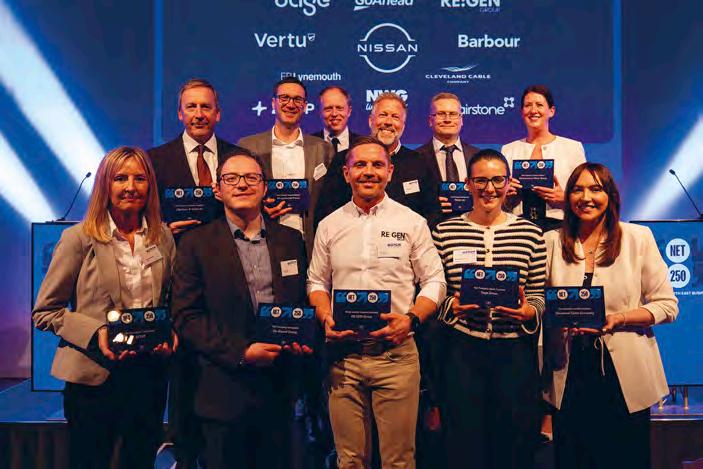
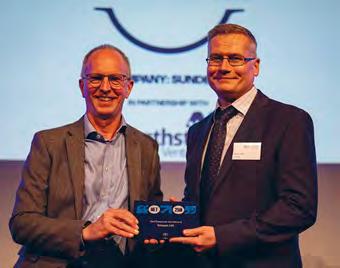
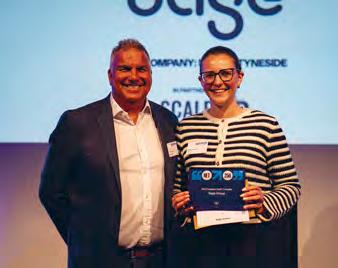

Stars shine brightly at 2025 North East HR&D Awards
North East HR&D Awards
www.northeasthrdawards.co.uk
LinkedIn: North East HR&D Awards
For a full gallery of images from the evening, visit www. northeasthrdawards.co.uk/live/en/ page/gallery
AWARD WINNERS:
HR&D team of the year - iamproperty
The North East HR&D Awards returned in early June to once again celebrate the sector’s brightest stars and stellar organisations. Delivered by NET – the publisher of N magazine – alongside associate partner TDR Training –the ceremony showcased standout achievements across a wide range of categories.
They’re on another planet!
The stars of the region’s HR and learning and development world have been honoured at a fun-filled space-themed event.
An audience of nearly 500 packed into The Fed, in Gateshead, for the 2025 North East HR&D Awards.
On an evening featuring astronauts, auroras and 12 hotly-contested accolades, online residential auctioneer iamproperty blasted off with the HR&D team of the year title.

Excellence in people and technology – Aspire Technology Solutions
Excellence and positive impact – Komatsu UK
Excellence in SME people practices – Inflo
Excellence in inclusivity and diversity – Karbon Homes
Excellence in health and wellness – Everyturn Mental Health
Excellence in reward and benefits – Newcastle Building Society
Excellence in supporting Armed Forces talent – Esh Group
Excellence in organisational and people development – Gentoo Group
Excellence in talent attraction and employer brand – J Barbour & Sons Ltd
Excellence in apprenticeships – OsecoElfab
Excellence in leadership – ConocoPhillips
Awards were judged by members of the North East Work & Talent advisory board, which reflects a cross-section of expertise and experience from regional organisations.
The annual spectacle was once again delivered alongside N magazine publisher NET, whose house of brands also includes national business news platform Bdaily.
Pete Mallon, NET creative and managing director, says: “It was a pleasure to be part of this wonderful ceremony again, and to have the opportunity to celebrate the incredible work carried out by individuals and organisations across the HR and learning and development landscape.”
Elouise Leonard-Cross and Sarah Carnegie, North East Work & Talent advisory board joint chairs, add: “The profession has a lot to share and celebrate.
“The North East Work & Talent advisory board is proud to have collaborated once again with NET, and we look forward to the 2026 ceremony.”
The evening – which also included spacethemed creative and app-based activities delivered by Newcastle tech firm Motivait –raised £3591.50 for Impact Family Services, which provides domestic abuse support, child contact services and behavioural change programmes across the North East.
The ceremony was supported by associate partner TDR Training, which delivers apprenticeship and higher education courses to hundreds of learners every year from its North Tyneside headquarters.
Award category partners included CIPD, Esh Group, Jackson Hogg, the North East Chamber of Commerce and North East Work & Talent.
Northumbrian Water, NPH Group, Recovery4Life, Sullivan Brown HR Recruitment and MI-Say, and Womble Bond Dickinson were further category partners.
Motivait was the evening’s digital engagement partner, with the North East Apprenticeship Ambassador Network acting as programme partner.
Talentheads was the night’s photobooth partner, with Square One Law the ceremony’s film partner.




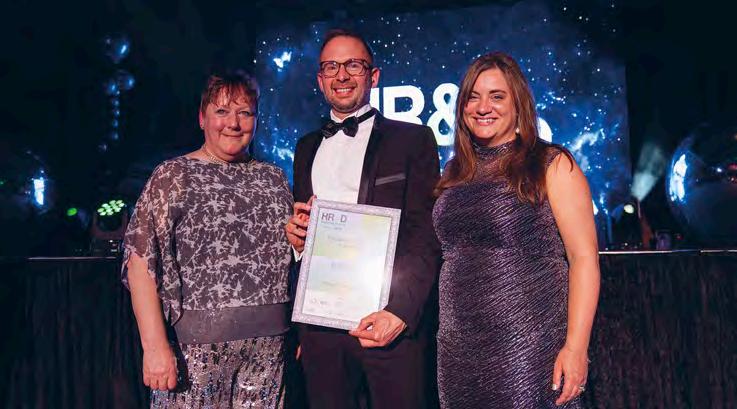


COLLABORATION IS THE KEY TO SUCCESS

The North East is a hotbed of innovation, enterprise and game-changing industrial advances, with the talent, businesses and ambition to be genuinely world-leading.
But to realise that potential, it must shed its cloak of modesty and bridge internal divides.
That was the overriding message from multiplatform publisher NET’s latest VISION 31 event, which gathered business leaders and industry experts at AV Dawson, on the banks of
www.netimesmagazine.co.uk
LinkedIn: North East Times
opportunities and fully seize the possibilities presented by devolution.
Two panel discussions – chaired by N magazine and Bdaily editor-in-chief Steven Hugill – reflected the recurring theme of the two previous VISION 31 events in London and Sunderland: The North East’s uniqueness lies in its people, their industriousness, passion and inimitable spirit.
The first panel, titled The North East: An Engine of Opportunity, showcased business figures who have expanded beyond the Tees Valley to
can often be too reticent when promoting itself and lack a unified front.
Keith said: “We need to be bolder.
“Instead of getting caught up in headlines and soundbites, we should look deeper to understand the truth behind the chaos and half-truths we often hear from central and local Government.
“We have powerful platforms and initiatives in the North East that can help us cut through the noise and make sure the real issues are heard and addressed.”
Kirsten agreed, adding: “One of the great strengths of Teesside is our ability to collaborate and champion each other.
“Yes, we get on and roll our sleeves up, but I think we have, in the last five to eight years, been better at shouting from the rooftops and saying, ‘look at all the fantastic things happening here’.
“But we need a much more joined-up approach across the region, and we need to invest more by making public affairs and stakeholder engagement part of our communication strategy.
“If we do this as a region, with clear plans and consistent effort, we can better influence Government decisions that impact us all.”
The second panel – The North East: Where Investment Delivers Impact – included insight from Arif Mushtaq, managing director at Ashbrookes Group; David Jack, chief revenue officer at SeAH Wind; Peter Snaith, partner at Womble Bond Dickinson; Phil Forster, managing director at Teesside International Airport; and Elaine Stroud, chief executive of the Entrepreneurs’ Forum.
The discussion focused on some of the headline projects happening across the Tees Valley, including the transformation of Teesside International Airport since returning to public ownership in 2019 and SeAH Wind’s new wind turbine monopile manufacturing plant at the Teesworks site, which is set to create up to 750 direct jobs.
Speaking about the reasons why SeAH Wind invested in Teesside, David said: “We talk about location, location, location – and for offshore wind, that means scale, deepwater access and large manufacturing capability.
‘You hear this saying about ‘bringing the mountain to Mohammed’, but that’s not

possible in our world.
“We actually have to go to the mountain.
“There was no perfect location, but Teesside was as close as we could possibly find.”
He added the £114 million investment in the Steel River Quay on the south bank of the River Tees, which was purpose-built for the offshore wind sector, proved to be a “key driver” in SeAH’s decision to choose the Tees Valley.
He added: “That really was the pull. “We needed something new that was fit for our industry and would enable us to bring in the scale of vessels our industry demands, which few other locations can support.”
Other panellists agreed these regeneration projects must act as catalysts for further investment and job creation, but barriers remain – especially around messaging and education.
Peter highlighted Teesside’s unique strengths – from scale and space to a diverse industrial base – but said these advantages are often hidden in plain sight.
He said: “Teesside is the best place to make things and move things, but could most people tell you what’s actually here?
“There’s a whole ecosystem of opportunity, but too often people cannot see the scale of opportunity on their doorstep.
“This also translates to education, because most teachers don’t know what’s here either.
“And if young people can’t see the breadth of careers available across the maritime and manufacturing sectors, they won’t know those opportunities exist.
“Fundamentally, we need to do a better job of promoting the region, because from the outside world people don’t know what’s happening on Teesside – and even the people of Teesside don’t really know.”
Arif reiterated the same point, highlighting the challenge of attracting investment.
He said: “We need to do a much better job of telling people about the great things that are happening here.
“If we can bring in people who believe in longterm growth, they’ll not only benefit from what the area offers – they’ll contribute to it and help drive it forward.”
Elaine said raising awareness through storytelling will be key to inspiring future generations.
She added: “Founder-led businesses are absolutely critical to the economy.
“They fire up the bellies of the next generation because they show what’s possible – real people from the same streets building something of their own.
“If we can amplify those stories properly, through case studies and better messaging,
we can inspire more people to follow in their footsteps.”
The next VISION 31 event will take place in London in November.
To register your interest, contact NET events managers Lesley Hampson and Dawn Owens at lesley@netimesmagazine.co.uk or dawn@netimesmagazine.co.uk
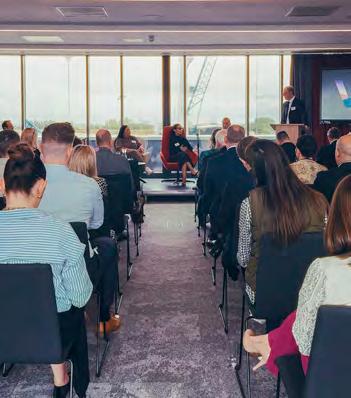

This is an abridged version of the full event report, which you can read on the Bdaily website by visiting www.bdaily.co.uk
A YEAR OF GROWTH – AND MORE TO COME
A year on from buying Bdaily, multi-platform publisher NET has revitalised the national business news website. Here, Steven Hugill, NET editor-in-chief, reveals how the transformation is driving deeper audience engagement – with further advances to come.
As the North East continues to evolve amid headline-grabbing devolution change, NET is also writing its own growth story.
A central chapter in its narrative is Bdaily.
Bought by NET a year ago, the national business news website is now firmly embedded in the multi-platform publisher’s expansion strategy.
Having undergone a purposeful evolution, the platform now boasts a refreshed editorial approach, new people-led features, engaging columnists and a sharper commercial offer, which have driven notable growth and restored the brand’s relevance in an increasingly competitive digital media landscape.
The impact has been significant.
Since relaunching the website in the autumn of 2024, NET – the house of brands which also includes N magazine – has seen engagement rise steeply.
Visitor numbers have climbed regularly and demand for the website’s daily email bulletins continues to arc upwards.
From the turn of 2025 to the present day, the site has garnered more than two million page views from in excess of 400,000 visitors each month.
Subscribers to Bdaily’s email news bulletins – which hit North East inboxes five times a week and are complemented by twice weekly Yorkshire updates and a nationallyfocused update every Wednesday – have also increased sharply.
From nearly 48,000 in October, total subscribers stood in excess of 64,000 as this
edition of N magazine went to print.
And the trajectory continues across social media, where Bdaily LinkedIn follower numbers have grown from 6900 to around 11,700, and monthly impressions have jumped from less than 70,000 to more than 345,000.
Steven Hugill, NET editor-in-chief, says: “The team has worked incredibly hard over the past year to elevate Bdaily – editorially, commercially and socially – and the results speak for themselves.
“We’ve refined Bdaily’s editorial voice, launched new content platforms to broaden coverage and refreshed our commercial offer to provide clients with a more tailored and impactful route to maximising their messaging.
“All of that has helped build momentum and reconnect Bdaily with its core business audience.
“But we’re not standing still; we’re continuing to refine and enhance the platform with further additions.
“And with those changes, and the ongoing rise in site visits, page views and email bulletin subscriber numbers, Bdaily has great momentum as we enter the second half of the year.”
BDAILY
To find out more about Bdaily’s editorial offer, visit www.bdaily.co.uk. To learn how the platform can support your PR and commercial goals, email Sarah Law, Bdaily partnership and marketing manager, at sarah@bdaily.co.uk




From promises to progress
By Steven Hugill

From the Government’s recent headline economic and regeneration commitments to the rise of Reform across grassroots politics, Steven Hugill looks at the North East’s place within each – and why action must speak louder than words.
Don’t miss the opportunity
Here we are again. Another summer, another parliamentary recess.
Welcome to silly season, though after recent years, you’d be forgiven for assuming the House of Commons runs on one continuous comedic loop.
From a Government with a crick in its neck from dead-end policy reversals (Sir Keir is not for U-turning, apparently) and the Conservative Party so busy airbrushing 14 years of policy it’s now turned the nozzle on itself, you’re never too far from absurdity.
Speaking of idiocy, be ready to tick off ‘Boris Johnson in painfully naff Hawaiian-style shorts’ on your Westminster wind-down bingo card as recess really kicks in.
That Daily Mail column is doing some very heavy lifting in the political exposure stakes these days.
At least this year, amid the fluff and fill, we’ve got something a little more meaty to chew over by the poolside.
I’m talking about the Government’s ten-year infrastructure strategy.
Now, I will caveat this by saying we’ve been here before. Countless times.
But the paper does include commitments for the North East, and it does represent a commitment to longer term planning, which – after the last few years of complete chaos – is sweet relief.
So, what are we getting?
Well, the blueprint confirms an integrated funding settlement for the North East Combined Authority from 2026, which should allow for greater cohesion when allocating monies for the transport, skills, housing and overarching regeneration projects needed in the north of the region.
It also talks of a new Strategic Investment Opportunities unit, which is earmarked to
work with mayoral-led authorities, Whitehall departments and public organisations to “identify, shape and deliver on projects and programmes with significant scope for private capital and investor interest”.
And it commits to support for the Tees Tidelands Programme, which aims to improve estuary flood defences and restore mudflats and saltmarshes; backs the East Coast Cluster carbon capture venture primed for Teesside; and highlights 47 school rebuilds.
And when allied to the recent industrial strategy, trade strategy and spending review, which included promises of more devolved powers, science and technology funding and headline cash to expand the Tyne and Wear Metro, boost Teesside rail stations and speed up autonomous tram trials, it augurs well.
But, to wind that record again, we’ve been here before; what looks great on paper must be replicated in reality.
Our region’s businesses continue to deliver best-in-class products and services to customers worldwide.
It’s time they – and the North East’s regeneration bodies wrapping around those commercial ventures – are supported and given the means to truly help the region succeed.
For too long, the North East has been a footnote in the Westminster script.
These plans provide an opportunity for it to become a headline act once again.
We cannot afford to miss the opportunity.
Time to deliver
Speaking of silly season, here’s one for you: What do you call a councillor who’s both won and lost? An elected member of the Reform Party!
I’m here all week… (something Clacton’s residents haven’t heard from their Right
Honourable Member of Parliament in a good while).
While you’re here, try the fish – it’s the only thing more slippery than Nigel’s manifesto.
I know, I know, the phone is hardly ringing off the hook from the end-of-pier bookings office.
When you have to explain a punchline, you know the gig ain’t coming.
But here’s the set-up, anyway.
Why have Reform’s councillors lost? Well, because by winning seats in the manner they did (and for that we must acknowledge the ineptitude of the main parties at national level), the tables have turned.
No longer is it as easy to dog-whistle from the sidelines or hack away merrily on social media; expectation is now a burden to carry, rather than a desire to demand.
And in the muck and nettles of local authority politics, where services have been pared to the bone over the last decade, performative displays won’t cut it.
The party’s councillors – those who have so far avoided expulsion or resignation – will soon find that out, if they haven’t already.
The answer won’t lie in cringeworthy X posts paying homage to the Union flag, dropping diversity, equity and inclusion titles, carping about climate change or harping about working from home policy.
It’s going to require some good old-fashioned graft, a proper understanding of community needs and a building of rapport with constituents that helps deliver change in the areas that matter across schools, housing, social care, leisure facilities, infinite potholed roads and more.
You can project all you like, but someone still needs to empty the bins.
Reform spent long enough shouting for power. That time has arrived. It must now deliver.
QUESTION
B G
With the UK having secured a trade deal with India, revised tariff arrangements with the US and agreed changes to Brexit policy, how do you view the country’s current trade direction? Do the developments mark genuine progress, or will long-term success only be delivered through a renegotiated deal with the European Union?
By Steven Hugill


Eve Halliday Senior international trade manager North East Chamber of Commerce
The key point is that the UK is open for business – to create and maintain quality jobs and skills at home – and there is growing optimism about the direction of UK trade.
The UK’s biggest trading partner remains the European Union, and the recent reset deal has helped reduce some post-Brexit trade friction.
Further deals with the US – the world’s biggest economy – and India – the world’s most populous country –demonstrate the UK’s desire to diversify and grow sustainably in the post-Brexit landscape.
The UK formally joined the Comprehensive and Progressive Agreement for Trans-Pacific Partnership in 2023, becoming the first European country to do so.
That partnership is a free trade agreement between 11 countries across the Asia-Pacific region – Australia, Brunei, Canada, Chile, Japan, Malaysia, Mexico, New Zealand, Peru, Singapore and Vietnam.
It gives UK businesses access to a region that accounts for around 14 per cent of global GDP, so represents a significant opportunity.
As ever, the devil lies in the detail, and the task now is to turn these opportunities into workable trading systems – not least around certification and regulatory compliance – and realise their full benefit.
That is the challenge for the second half of this decade.

Chris Carroll Managing director
Resolved
Group
The UK-India trade deal isn’t just a policy announcement, it’s something to which we feel a personal connection.
We’ve spent more than a decade building an exceptional development team in India; its dedication, loyalty and technical expertise shines through in everything we deliver.
This agreement presents new opportunities to strengthen our relationship.
With fewer barriers to bringing skilled professionals to the UK, we can integrate our teams more closely, which not only improves our service delivery but creates new opportunities for shared learning.
The incredible talent within our Indian team can help upskill and bring fresh perspectives to our UK teams.
Additionally, this deal potentially unlocks further investment in talent, training and innovation, while supporting the growth of the UK tech sector, especially in regions like ours.
I view the UK’s broader trade direction as genuine progress.
The Government appears focused on establishing strong relationships with countries that offer long-term value, which is a prudent move.
However, a closer, more practical trading relationship with the European Union would also bring significant benefits.
Future success will likely depend on the UK’s ability to remain flexible, with ever-strengthening global ties, while maintaining its most vital European partnerships.

Graham Melroy Director
T12 Engineering

Duncan Hedley Managing director Berger Closures
The recent trade agreements with India and the US certainly indicate a proactive approach to global commerce post-Brexit.
Such deals may help open doors for some sectors, particularly goods and investment, but for companies like T12 Engineering, operating primarily in services, the practical impact is more nuanced.
Services aren’t typically subject to tariffs, so the benefits hinge more on regulatory alignment, recognition of qualifications and ease of cross-border collaboration.
While these trade deals are welcome signs of progress, long-term success likely depends on securing broader and deeper agreements, particularly with the European Union, which remains our largest trading partner.
Anything that reduces friction for services will encourage quicker decision-making and smoother operations, particularly for those businesses working across borders.
Exchange rate volatility remains a more immediate concern for globallyfocused firms.
Stability in currency markets may ultimately have a greater day-today impact than high-level trade announcements.
In that sense, the UK’s current trade direction is a step forward, but not a definitive solution.
Strategic partnerships are important, but for sectors built on expertise, agility and responsiveness, clarity and stability – both regulatory and economic – are key to long-term competitiveness.
The US is our main export market, so we are monitoring the situation around the proposed trade deal very closely.
At the moment, things are still very uncertain, which is making business planning, both in the short and long term, very difficult.
However, if the UK can achieve sign-off on the trade deal with President Trump, that will make a huge difference to businesses like ours.
Thankfully, the situation with the European Union has now stabilised, which is a good thing for those firms that import and export.
There is a lot of bureaucracy, though, so I think if the Government could negotiate a better deal, which simplifies the process, that would really improve things.
In general terms, I think all of the activity around trade deals the Government is working on is positive.
However, there are a lot of different nuances between different countries and regions, which must be factored into relationships as we move forward.
A trusted partnership
Gateshead College
www.gateshead.ac.uk
LinkedIn: Gateshead College
In a fast-evolving industrial landscape, access to skilled talent is essential. And Gateshead College is helping meet that demand through higher technical qualifications. The drive is backed by strong commercial sector support, not least from David Ditchburn, technical sales manager at South Shields-based Aberlink, who is melding his understanding of modern-day advances with experiences from his apprentice days to help shape the college’s curriculum and ensure students are industry-ready from day one. Here, Colin Young speaks to David to find out more.

David Ditchburn was destined to be an engineer.
His father Dave founded and owned South Shields-based engineering firm Machining Techniques and, in his own words, he always ‘loved fixing and building things’ as a child.
David, 34, who is now technical sales manager at Aberlink, also in South Shields, could have stayed in education – he left his sixth form course after six months – but decided to take up an apprenticeship at the former Rolls Royce training centre in Scotswood Road.
That was 16 years ago.
And, although the financial crash of 2008 meant he initially went to work for his father, rather than being taken on by Rolls Royce – despite being apprentice of the year – he’s never looked back.
So when Charlotte Brass, Gateshead College’s curriculum leader for engineering apprenticeships and higher education, approached him about the prospect of Aberlink supporting higher technical qualifications (HTQs) and the next generation of engineers, he was immediately interested.
David says: “I joke about it, but we make measuring machines at Aberlink, and our section of the curriculum is quality control.
“The general idea is that they essentially measure products that are manufactured and tell you whether they’re good or bad, with really precise measurements.
“When I was an apprentice, on the quality control module, you just needed a picture sat next to one of those machines; they had no way to actually put it on the course and test whether you knew what you were doing with it.
“When I went to work for my dad, they bought a coordinate measuring machine, and I went on a training course to use it.
“I actually got a tick in the box and a certificate to qualify – and all I needed was a photo of me stood next to the machine.
“It’s almost embarrassing looking back now, but that’s how much things have changed.
“Now, through HTQs, you’re getting industryspecific training and you learn how to operate the machine straight away, as opposed to a two or three-year learning curve to becoming a quality control inspector.
“And I’m coming at this from a tiny section; there are so many different modules from every industry, and they are now industry-relevant courses.
“It doesn’t matter what module you’re doing, the industry specialists are giving the skills to students to roll straight out into industry.”
He adds: “I’m definitely feeling old – and I’m only 34 – but the difference is light years away.
“We’re using tools and machines that are being used across industry now, rather than 30 years ago.
“That is so valuable.”
The relationship between Aberlink and Gateshead College is very hands-on.
Students and lecturers constantly spend time at the company’s South Shields base, which allows both parties to adapt and tailor the module to keep it updated.
David has hosted seminars, and naturally has a vested interest in future employees’ developments.
He describes it as a ‘breath of fresh air’.
David says: “The lecturers are actually really excited about it, because they’re getting assistance on how to teach the different modules.
“They’re just as excited as the students because they’re getting to work with the latest kit.
“The biggest thing with getting the apprentices involved in engineering at the minute – and I’m sure it’s the same for the different sections of the college – is the students are excited too.
“Through our partnership, they have access to our coordinate measuring machines and handson training with the same technology they’ll use in industry.
“They’re not just learning theory, they’re gaining hands-on experience.
“If students are told they’re going to use a machine they’re never going to see again in industry, they immediately switch off and don’t want to do the course.
“And on a broader scale, there’s a huge skills shortage, especially in engineering in the UK.
“I deal with distributors all over the world, and they’re all facing the same problems; there are very few people that know how to use the machines.
“It’s in employers’ best interests, because they’re getting highly-skilled staff straight out of college, so don’t need to put them through four more years of training.”
David believes the collaboration between Aberlink and Gateshead College sets the benchmark for how education and industry can work together.
He says: “Gateshead College isn’t just training students, it is doing an outstanding job of developing confident and capable engineers,
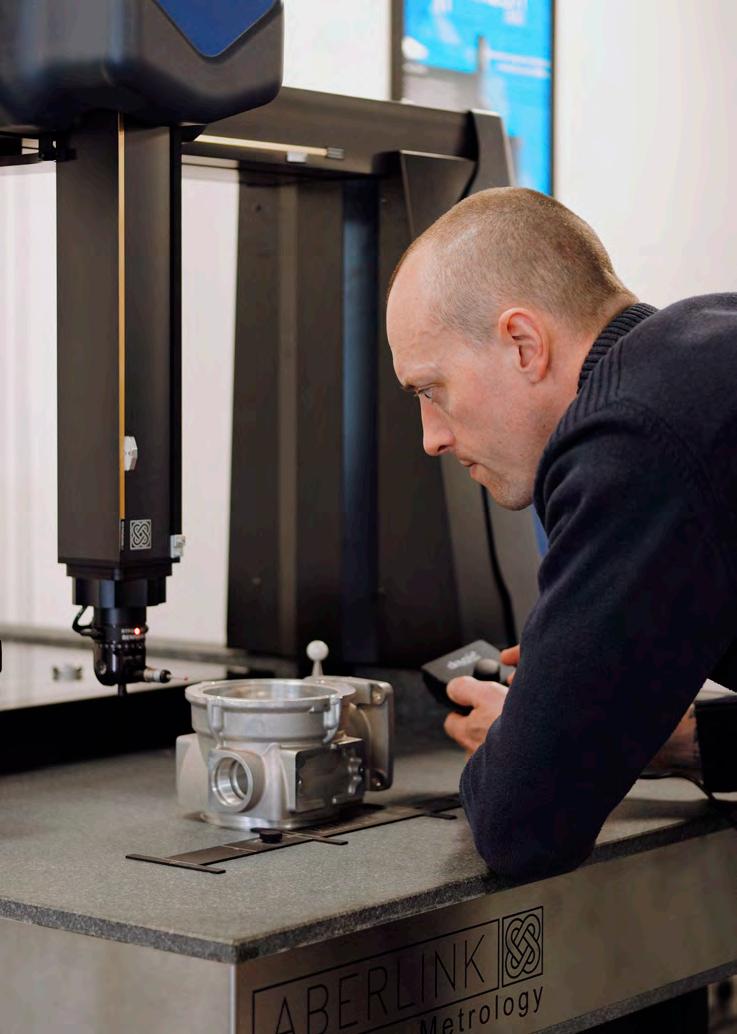
who will help drive industry forward from day one.
“If you take on someone with a degree, they expect a higher level of pay, but they still have to go through the exact same training skills as apprentices.
“It’s different in different industries, but in manufacturing and engineering, that represents the vast majority of cases, so there’s no value in actually doing the degree, other than just getting yourself in debt.
“With HTQs, however, you’re getting specific skills in specific roles straight away, and in engineering and manufacturing, that is 100 per cent the case.
“When Charlotte reached out to me, I had no hesitation in getting involved.”
Gateshead College
For more information about Gateshead College and its higher technical qualifications, visit the website at the top of this article.
Savouring success
Scaleup North East
www.scaleupnortheast.co.uk
LinkedIn: RTC North
Savour Bakery Cafe & Patisserie
www.savourbakecafe.com
Instagram: savourbakecafe
Scaleup North East
To be eligible for Scaleup North East support, companies should be:
• Businesses, including start-ups, which are scaling or can demonstrate significant growth potential
• Based in the areas of Northumberland, North Tyneside, South Tyneside, Newcastle-upon-Tyne or the Gateshead Metropolitan Borough
Ideally in the following sectors, although others will be considered:
• Digital and technology
• Health and life sciences
• Low carbon and green growth
• Creative industries
• Advanced manufacturing
The following sectors are not eligible for support:
• Agriculture
• Fishery and aquaculture
• Banking
• Insurance
Firms should ideally demonstrate a growth rate of 20 per cent over two previous years, or high growth potential, demonstrating growth of above ten per cent and forecasting future growth of at least ten per cent, with increase in employment
For more information, visit www.scaleupnortheast.co.uk
Scaleup North East is delivered by RTC North and funded by the Government through the UK Shared Prosperity Fund. The programme is led by the North East Combined Authority, covering the seven local authority areas of County Durham, Gateshead, Newcastle, North Tyneside, South Tyneside, Sunderland and Northumberland.
Success in business requires the right mix of ingredients. For Josh Freudiger, the recipe includes a blend of premium produce, a dash of serendipity and generous helpings of support from the Scaleup North East programme. The result is Gateshead-based Savour Bakery Cafe & Patisserie, which, while still in its infancy, is already drawing crowds for its artisan breads and indulgent sweet treats. Here, Josh tells Steven Hugill about the venture’s origins, the impact of Scaleup North East backing and why the future is full of opportunity.
Josh Freudiger opens with an apology.
Our meeting, originally scheduled for the morning, has slipped into the afternoon.
When we finally connect, the reason becomes immediately clear: Josh’s mobile cocktail bar business is deep in prep mode, gearing up to please wedding guests’ palates in just a few hours’ time.
It’s a frenzy of activity, our already staccato conversation further punctuated by quick-fire staff queries and similarly brisk bouts of signal interference.
Hundreds of miles away, in a terraced row of Gateshead shops, the scene is somewhat more tranquil.
Beyond a large window that frames freshlybaked breads cradled in a black wire basket, customers frown in silent contemplation at the array of colourful and intricately presented patisserie treats lined regimentally behind a glass counter.
Next door, the intensity rises again.
Machines whirr, trays clatter and chat flows briskly as apron-clad chefs fashion fresh batches of goods.
Welcome to Savour Bakery Cafe & Patisserie.
Welcome to the ever-shifting rhythm of entrepreneurial life.
Welcome to Josh’s world.
Though only launched late last year, Savour has quickly built a loyal following.
From croissants and pain au chocolat, to artisan loaves, macaroons, cream-filled brioche buns, pecan bars and much more besides, the venture regularly prompts queues to snake along the pavement beneath its marble-effect

For Josh – whose working life began with e-commerce business Cheerful Bargains, which he helped grow from a start-up to a £6 milliona-year operation while overseeing a 35-strong team – it marks another step in his commercial journey.
And like all entrepreneurial endeavours, it started with an idea – and a little dose of serendipity.
In the case of Savour, its fate was conceived via another of Josh’s businesses – a mobile coffee bar – which led to an encounter with then Israel-based pastry chef Stav Sadan.
Josh says: “I enjoyed my time at Cheerful Bargains, and we did very well, but I always wanted to start my own company.
“I left after ten-and-a-half years and opened Olo

Marketing, and had a printing business too.
“I also had the cocktail bar, which was more of a side hustle to begin with.
“I was then offered a couple of events, and it quickly moved from being a hobby to a business.
“Savour then came along from a coffee bar event I held under the Mixology brand for a London business conference.
“Someone said to me, ‘why don’t you open a coffee shop in Gateshead?’”
“I began looking into the idea, and then met Stav at an event.
“I asked her for some tips and tricks on the coffee shop side of things, and she suggested we jump on a call.
“Stav was living in Israel at the time, and I asked her – as a joke – during our conversation if she fancied relocating to the North East, to help set up the business.
“She said yes, and here we are today, with the idea having moved from a coffee shop to a premium bakery, café, patisserie and chocolatier.”
The venture – which sees Stav manage a team of seven pastry chefs – officially opened in December last year, with Josh drawing on support from the Scaleup North East programme to aid its progress.
Funded by the Government through the UK Shared Prosperity Fund – with the North East Combined Authority acting as lead organisation – the project is delivered via RTC North, with partners Angelina Bell, Craig Huntingdon, Tony Brooks, Dan Martin, Steve Bell and Mark Harrison using decades of combined entrepreneurial experience to help ambitious business owners map out growth blueprints.
Josh was supported by Craig, whose CV includes the international scaling of a wall covering manufacturer following a management

buyout in his early 20s, and a decade as trading director at supermarket Aldi.
Josh says: “Craig has been a really strong help.
“With his retail and hospitality experience, he has been right behind us.
“I met him regularly, and he gave me a lot of advice and pointers on setting up a business around areas such as tackling financial challenges and getting people through the door.
“His support was crucial to helping us get things right.”
Craig adds: “Working with Josh on the successful launch of Savour was a great privilege, drawing upon my retail experience but also cutting across finance, funding, marketing and operations.
“There is something very special about seeing a founder’s vision become a reality, especially having observed significant and complex challenges along the way.
“Josh has succeeded in launching a highly ambitious project with drive, energy and tenacity in abundance, and I look forward to seeing this energy fuel the next stage of Savour’s growth.”
And with Craig’s advice helping direct progress, Josh says Savour is readily placed to take a greater slice of the marketplace.
He says: “There aren’t too many premium bakeries in the North East, and some said we might not succeed. But we have.
“We have people coming from all over to try the many different items created by Stav and her team.”
He adds: “From continuing to grow our Gateshead base, to working more across corporate events and celebrations, our journey is only starting.
“We have so much opportunity in front of us.”



The UK Shared Prosperity Fund
The UK Shared Prosperity Fund proactively supports mission-delivery: pushing power out to communities everywhere, with a specific focus to helping kickstart economic growth and promoting opportunities in all parts of the UK.
The Government’s Autumn Budget announced a further £900 million of funding for local investment by March 2026, with a transition year administered throughout the former North of Tyne region by the North East Combined Authority.
For more information, visit www.gov. uk/government/publications/uk-sharedprosperity-fund-prospectus
RTC North
RTC North is a leading provider of business support and innovation services, working with organisations to unlock their potential and achieve sustainable growth.
With a wealth of expertise and a commitment to excellence, RTC North empowers businesses to overcome challenges, embrace opportunities and drive success in a rapidly evolving marketplace.




GOALS OPEN

From grassroots football to national company leadership, Tom Lawson’s people-first philosophy resonates across every pitch. Here, the chief executive of Newcastle-based tech firm Opencast tells Colin Young about putting employees and clients first, how the strategy is continuing to inform the company’s growth trajectory – and why he’s had to ban cartwheels.
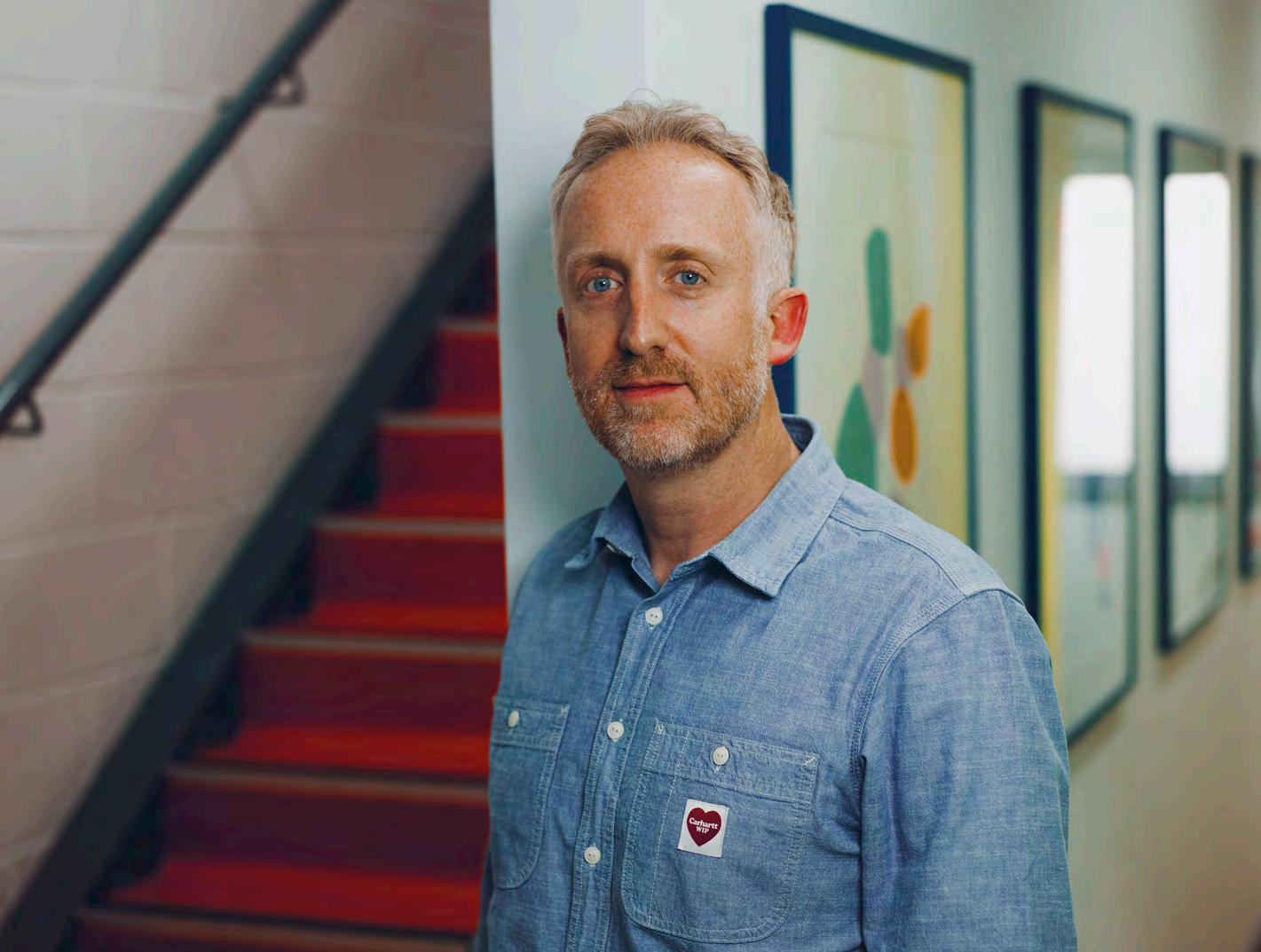

A couple of years ago, Evie Lawson, youngest daughter of Opencast chief executive Tom, started taking an interest in football and playing in goal.
Goalkeeping, though, isn’t the easiest of jobs for an eight-year-old.
Last summer, before the start of Evie’s first season in competitive football, her dad was asked if he would help out the Gatesheadbased team.
One DBS check and a training course later, and Tom found himself managing the side.
As chief executive of one of Newcastle’s leading technology companies, Tom doesn’t need to prove he can run a business; managing a young girls’ football team, though, was a different challenge.
He says: “I was asked if I would help out on matchdays, and I thought, ‘why not? I’ll be at the games anyway’.
“Next thing, a box full of kit arrives, all the gear, and I thought, ‘that’s very generous for helping out’, and then I looked on the club website and I’d been named as the gaffer.
“We have coaches who organise the training –I’d say my primary roles are matchdays, admin and squad discipline.”
And how’s that going?
“It’s quite a challenge,” says Tom.
He adds: “We’ve had to ban cartwheels, screaming and anything that we just find weird.
“I’m not sure my performance review for the last season would be a good one.
“It was our first season in the league – we had two wins and many defeats.
“But we’re learning and trying to create a very good culture in the team.
“As you would expect, the club is very much centred around learning and enjoyment, and that’s the most important thing.
“You do get drawn into wanting to win and see that side of it, but what you’re really trying to do is help these kids develop and learn.
“It’s also an alternative way of practising different forms of leadership.”
Five years ago, Yorkshire-born Durham University graduate Tom was approached by Charlie Hoult and Mike O’Brien, co-founders of technology consultancy Opencast, to become chief executive.
This promotion may have been more seamless and traditional than a kids’ football team, and obvious too, but Tom’s principles are the same.
People come first.
“I often say, we lease some buildings and we own a few laptops; that’s it – everything else is people,” says Tom.
He adds: “We don’t really have any IP, other than knowledge and experience; we don’t sell a fancy magic widget.
“It’s people. And prioritising how we look after those people is really central to our whole mission.
“We’ve built a lot of our reputation on doing the technical things well.
“But it’s the how that’s the difference.
“How do we go about doing it? How do our people show up? How do they work with the clients?
“What skills and methodologies do they use?

“We don’t really have any IP, other than knowledge and experience, and we don’t sell a fancy magic widget; it’s people – and prioritising how we look after them is really central to our whole mission”
“What are their values and their behaviours?
“When clients start working with us, they say, ‘oh, your people show up differently’.
“And that’s because we look after them.”
Founded in Byker in 2012, Opencast had already established itself as a tech company prepared to go head-to-head with the likes of IBM and Accenture, and transformation came in the form of the pandemic.
Opencast helped deliver projects such as the Government’s self-employed income support scheme within eight weeks.
The company’s reaction to the crisis set a precedent and a standard, and its critical systems and services continue to support the Government and NHS, delivering improved digital experiences for millions every day through tech innovation and data.
Today, Opencast continues to work with HMRC and DWP, two major employers based at Longbenton.
Tom says: “Demand for the services we deliver grew during the pandemic and gave us a platform to continue on beyond that.
“Despite some volatility in the market last year, we’re still seen as a real challenger to those really big global firms.
“We do what we do well, and clients prefer doing it with us.
“We moved gradually from being regional to being national, and now we’ve established offices in Glasgow, Edinburgh and London, with a presence in Leeds, Manchester and Birmingham – although we haven’t invested in physical space there.”
Opencast remains firmly headquartered in the North East, which is very much to Tom’s liking.
He says: “The co-founders were looking to scale the business, and I thought it was an amazing opportunity to take everything I’d learned elsewhere and do something differently.
“I’ve always had a slightly belligerent streak; I wanted to prove you could still build a career up here because I’m a Northerner, and I love living and working in this region.
“There’s a bit of personal determination to go, ‘why do you have to go to London to do that when you can do it here?’”
When Tom took over five years ago, Opencast was based in a small office in Hoult’s Yard, employing 80 people with around £6 million turnover.
Today, it employs nearly 500 people across the country, with half based through the arches in The Kiln, a purpose-built office.

CHIEF EXECUTIVE OPENCAST
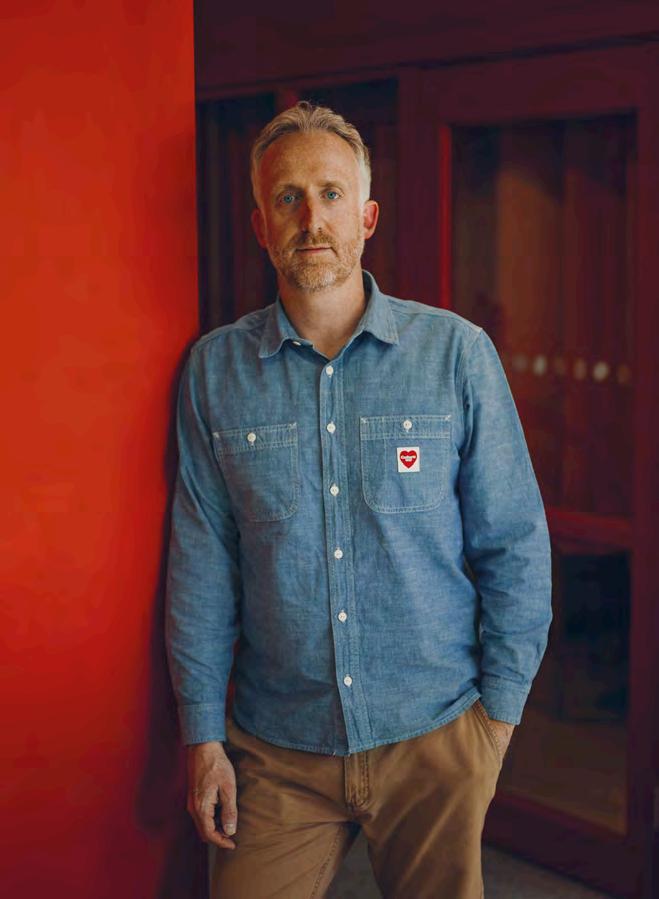
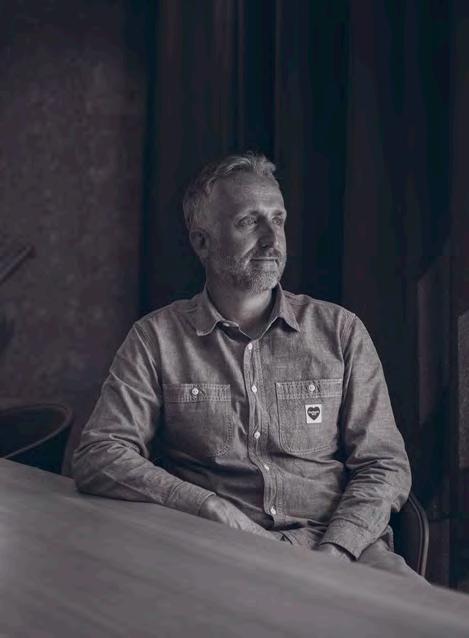
Turnover stands at more than £50 million.
The Kiln, tucked away on the site, is brimming with awards, stand-up desks and a large Shaun the Sheep model kept back from a Newcastle street art trail.
Opencast used extensive research to establish an office which would be the envy of many companies of any size; they have quadrupled the amount of floor space from their original home, yet only doubled the number of desks.
“We did a lot of our own research on design,” says Tom, who previously worked for competitor Capgemini.
He adds: “We asked questions like, ‘what would make people come to the office?’, because when we were building this we had to think about what the post-pandemic world might look like.
“How would we get people to want to leave the house and come to work?
“There are things we knew were good for them to do at home, so it was about designing space to support face-to-face meetings.
“We were very clear we didn’t want to go fully remote, so we stayed hybrid, because there are certain high-value interactions that have to be done face-to-face, internally and externally.
“For all the space we have, we don’t have lots of traditional desk space; we have lots of collaborative areas, meeting rooms and little private cabins.
“A big thing was having a social space where our people can connect with folk they don’t see in their team and be able to talk to them.
“There are different types of spaces, so it’s still an office, but you might feel like you’re almost working from home.”
And the people-first ethos extends to employees and clients which, in this region, as well as DWP and HMRC, has included NHS Business Services Authority, Sage, The Alnwick Garden, Recyke Y’Bike and the International Community Organisation of Sunderland.
And with Opencast becoming a B Corp last year, it joined more than 1700 businesses across the country to ensure high standards of social and environmental performance, transparency and accountability.
Tom says: “I think people want purpose in what they do.
“They want the work and the life they lead to have some sort of meaning to it.
“If there is some meaning to what we do, people will want to come here, they’ll want to stay here.
“They’ll show up and do things differently that
can have a hugely positive impact on the clients we work with.
“And through their role in the world, whether it’s government, healthcare or purposeful private sector organisation work, we’ll create positive impact in the world.
“That is a self-reinforcing cycle.
“Then you say, ‘we did that growth, so let’s go do more’, so we can create a meaningful difference through what we do.
“I think it’s exciting and more meaningful work and type of employment to be in, and we’ve got the opportunity to create that.”
Last year, Opencast was recognised as the fastest-growing large business at the North England/Scotland Northern Tech Awards, on top of two consecutive wins for growth from Dynamo North East and 75th place in the Sunday Times 100 list of the UK’s fastestgrowing businesses.
But for the team, Tom and chair Charlie – who introduced share schemes for all employees – there is no danger of resting on any laurels, with the leadership team now implementing a strategy for 2028.
Tom adds: “It’s about creating something meaningful in what we’re doing, looking after our people, who’ll then go do great things for clients impacting the world.
“And we keep doing more of it.
“It is an easy thing to say, but not many do it.
“We see government departments as really key; they serve the country and there is a lot we can do to create a better experience for citizens.
“Health is huge, and the NHS needs transforming significantly if it’s going to deliver the outcomes people need.
“We think about how we put people at the centre of that journey and deliver the maximum impact that’s positive.
“Philosophically, how do our people show up in those environments, caring about what they’re doing, so that we make that difference?
“That’s what we want to create.
“To win across government and healthcare settings you need to be technically very good at what you do and then be able to tell that story.
“We can do that.
“You’ve also got to be really socially impactful as a business.
“You have to show you provide greater impact in society.
“That’s a critical part of our business model.”


Rolling out a new look
Karpet Mills Group
www.karpetmills.co.uk
LinkedIn: Karpet Mills
With eight branches and showrooms across the North East showcasing quality flooring solutions for any style or budget, the Karpet Mills Group has a commitment to delivering the best for its customers. Here, director Joel Dickinson explains how a new refurbishment programme across its portfolio, supported by new product lines, is ensuring the 147-year-old business is ready for the future.
Walk into any Karpet Mills showroom and you’ll find more than just flooring – you’ll find a business that’s constantly evolving.
For director Joel Dickinson, though, the company’s ongoing refurbishment programme isn’t just about fresh paint and new displays.
It is about creating a customer experience that reflects the company’s heritage while embracing the future, all backed by a carefully curated range of new product lines.
Following the sixth-generation family business’ most successful year on record in 2024, the decision was made to press ahead with long-standing plans to upgrade each of its five showrooms across the region.
With work at three sites – Benton, Hexham and its flagship Kingston Park branch – already complete, further refurbishment will be carried out in the autumn at its Gateshead and Hetton stores.
Joel says: “We’ve taken a decision to invest heavily across all the showrooms in our portfolio.
“These were plans that were in place before COVID-19, but we pressed pause until we were

sure we were in a good place to complete the refurbishments to the standards we wanted.
“Despite the economic headwinds we’ve all faced in recent years, we were proud to report a record year in 2024, bucking the trend in the flooring sector more widely.
Karpet Mills Group
With Karpet Mills branches in Kingston Park, Gateshead, Hetton, Hexham and Benton; Designer Flooring Showrooms in Kingston Park and Hexham; and PJ Carpets in Kingston Park, the Karpet Mills Group is the number one provider of carpets and flooring in the region.
To find out more about how its styles and flooring offers could meet your budget, visit www.karpetmills.co.uk
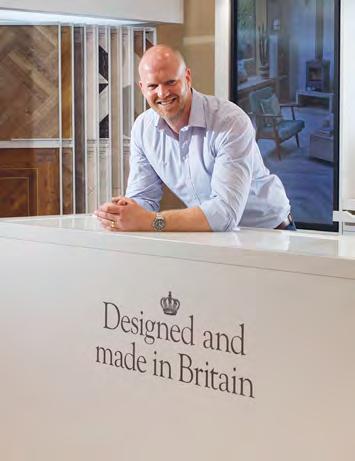
“And rather than rest on our laurels, we decided to be bullish in 2025 and invest using the proceeds of our success last year to make sure we can continue driving forward.”
The refurbishment work at the Benton branch has seen a significant increase in retail floor space, achieved by moving an adjoining warehouse to a new central operations site.
A new glazed entrance has been added to the building, with the aim of creating a more welcoming and modern exterior.
A matching glazed feature entrance has been added at Hexham, which has also had a contemporary makeover to the interior –keeping up with market leaders and enhancing customer experience.
Meanwhile, the Kingston Park store has been modernised and reconfigured to expand its premium Designer Flooring marque.
The firm has also expanded its long-term partnership with luxury flooring firm Amtico, with an away day planned for staff to visit the
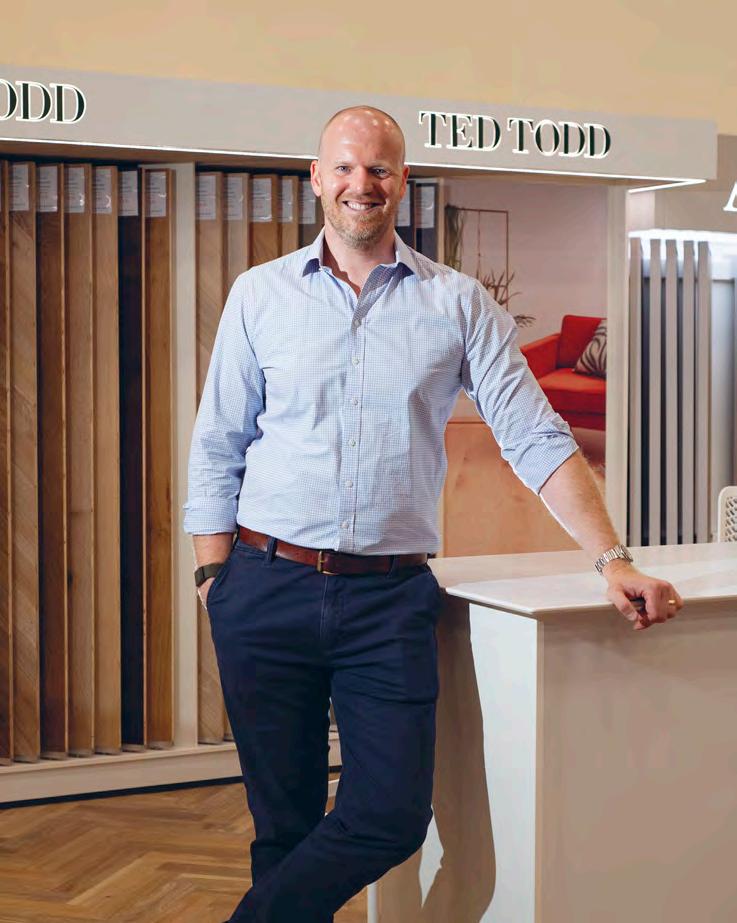
company’s production hub in Coventry.
Its latest product – Amtico First – will be sold at Karpet Mills’ Designer Flooring outlets at Kingston Park and Hexham.
Described by Joel as Amtico’s entry-level product, with a sharp price point in the firm’s range, it means the company now offers the full range of Amtico products, for all styles and budgets.
And for the first time, the company also hopes to install Amtico displays at the Benton and Hetton branches in August.
Joel says: “We’re really focused on the LVT part of the market, and the additions we’re planning will double our showroom space across our portfolio with Amtico.
“We feel it’s important for customers to be able to find all the products they expect to see across our branches.”
The extension of the Kingston Park Designer Flooring showroom also means the arrival of two new names this summer, including luxury wooden flooring from premium brand Ted Todd.
Also launching is a bespoke stair runner display that will allow people to see a range of products and designs that can be turned into runners using an in-house service provided by Karpet Mills.
Joel says: “The stair runner display is something we’ve introduced in response to customer demand for custom designs, as runners on staircases are a key trend for this year and beyond.
“We wanted to create an easy way for customers to physically see the options available to them, and the potential for the end result.
“It’s been really well received in the first few months.”
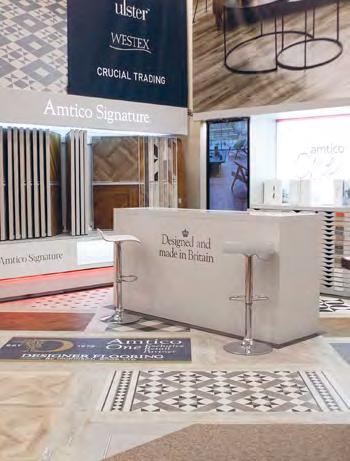
As well as investment in products and facilities, Karpet Mills also continues to invest in its people.
A number of new staff are being welcomed into the company, including retail sales staff and estimators to support the business’ continued growth and uphold the quality service customers have come to expect.
Joel adds: “The investment this year adds to what we’ve done to our business over the last 147 years.
“We’re always striving to improve and keep up with what customers want.
“That means having our showrooms full of key products and offering the best value and choice, from entry-level products to ultraexclusive boutique brands.
“We want to make sure everyone experiences the same high level of service, with expert installation teams for every product.”
The land of opportunity
Business Durham
www.businessdurham.co.uk
LinkedIn: Business Durham
From a world-leading science park to small rural hubs, Business Durham works with companies of all shapes and sizes. With a remit to grow County Durham’s economy, managing director Sarah Slaven tells N magazine how the organisation supports businesses to start up, relocate and expand.
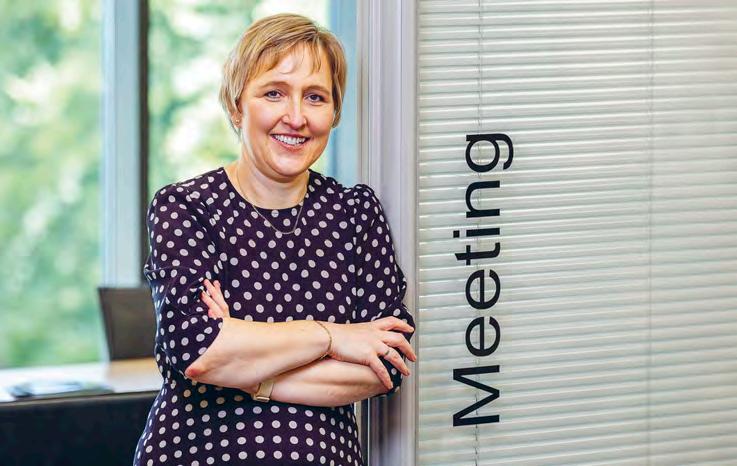
In business, making connections is key to success.
With strong relationships and strategic partnerships come opportunities for growth, innovation and new beginnings.
Leading the way in connecting people, property and funding advice across County Durham is Business Durham.
As the business support service for Durham County Council, it works with companies of all shapes and sizes to ensure the county is a great place for businesses to start up, grow and relocate.
Managing director Sarah Slaven credits the proactive work of her team and Business Durham’s longevity as a key factor in helping it build successful relationships.
She says: “Business Durham is here for the long-term.
“We work closely with other key partners and hold long-term relationships, which is important in allowing us to deliver what we do.
“Our focus is to support all businesses, no matter their size, sector or location, in County Durham – anyone can talk to us and find out how we can help.”
A cornerstone of that support is Business Durham’s extensive property portfolio, which includes managed offices and industrial units across the county.
Its flagship site, North East Technology Park (NETPark) in Sedgefield, recently completed its third phase of development, reinforcing its status as a national hub for science, technology and research and development.
Fresh from winning two high-value contracts to supply Elon Musk’s Space X venture, micro communications maker Filtronic is the first tenant to take space in phase three, to enable the company to expand from its established base elsewhere on the site.
Sarah says: “NETPark is focused on key sectors where County Durham can compete – life sciences, defence, cybersecurity, materials and the space and satellite industry are very important.
“Filtronic’s success demonstrates how NETPark and its facilities are putting the right infrastructure in place for companies in the space sector to grow and develop.”
While NETPark often grabs headlines, Business Durham offers high-quality commercial space across the length and breadth of the county,
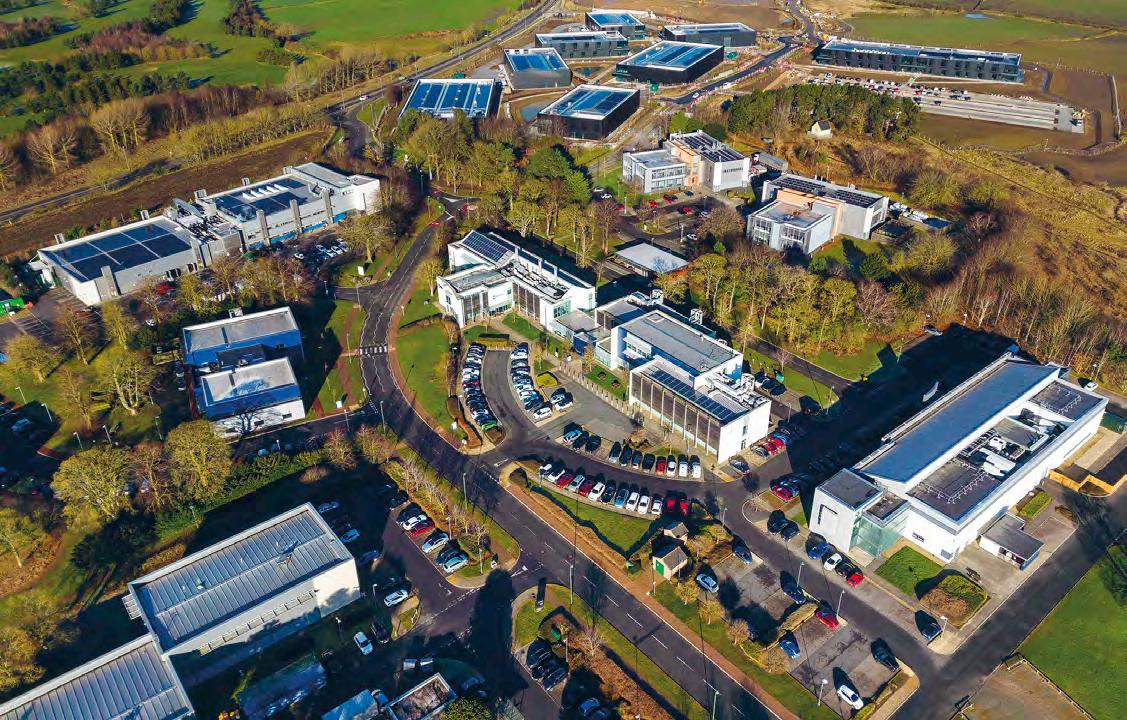
providing a key source of office space for smaller organisations.
Other eye-catching developments include the rejuvenated Aykley Heads site in Durham City – set to become a fintech, digital and artificial intelligence hub – and a new rural business base set in a former primary school in Rookhope, near Stanhope, in the heart of the Durham Dales.
“We operate in the property space that the market often doesn’t cater for – smaller units where it can be more difficult for the private sector to make a commercial return on development,” says Sarah.
She adds: “For larger premises, we work with private providers to attract bigger companies looking to grow or relocate.
“Premises are key to helping businesses scale and become sustainable.”
As one of the largest counties in England, a key challenge for the Business Durham team is ensuring potential investors understand the area and what it has to offer beyond Durham City’s world-famous heritage and academic attractions.
A new place campaign aims to broaden the horizons of businesses looking to relocate to the area, which includes visits from a number of international delegations to check out the facilities on offer in key sectors.
Also offering up new opportunities and connections is the North East Combined Authority, which links County Durham with six other local authorities in the north of the region to create one voice.
Improved transport links and support for the rural economy are just two areas where Business Durham has been able to share best practice and lobby for investment.
Sarah says: “We want County Durham at the top of the list for companies and investors looking to move to the UK.
“Our role is to make connections – at its heart, business is all about building networks and working with people.
“We work with companies to understand their aspirations and opportunities, as well as the hurdles they are facing.
“The team at Business Durham is curious; they
love going to businesses and finding out what they are doing.
“And, once we know, we can connect that business into any support structures that might be beneficial.
“Our role is to make things a bit easier for businesses or maybe help them solve a problem, such as a lack of space or grant support to help them invest.
“Growth comes from the businesses – and we are here to support them.”
Business Durham
To find out more about Business Durham and the services it provides to aid organisations’ growth plans, visit the website at the top of this article.
As momentum builds around efforts to accelerate the UK’s green energy transition, Port of Tyne and Teesport operator PD Ports are pressing ahead with multi-millionpound blueprints aimed at shaping a more sustainable future. Here, leaders from both trade hubs reveal how the projects can drive long-term change.

Frans Calje Chief executive PD Ports
Powering the clean energy push Driving the green revolution
Having unveiled a £200 million blueprint for a 180-acre offshore wind manufacturing and installation hub at Teesport, PD Ports’ chief executive Frans Calje tells N magazine how the venture – known as the Teesport Offshore Gateway – can boost the national push for net-zero and secure the UK’s energy future.
We have long been a champion of efforts to make Teesside a major hub for clean energy industries.
With the announcement of the Teesport Offshore Gateway, we are aiming to play our part in the Government’s push to generate 60 gigawatts of electricity annually via offshore wind sources by 2030.
Given the current capacity is just 14.8 gigawatts, a major acceleration of offshore projects is required if we are to meet that target.
The UK does not currently have sufficient capacity across its port network to roll out offshore development on the scale needed. With Teesport Offshore Gateway, however, we have a site that already has planning and
marine development consent in place, subject to minor amendments, to develop an existing riverside berth at Tees Dock.
This will see the creation of a one-kilometre quay, with a berth of 15.5-metres in depth –suitable for all current and planned offshore vessels available globally.
With established national rail freight and road links from the heart of PD Ports’ Teesport industrial complex, Teesport Offshore Gateway opens up huge potential for manufacturers, assembly, marshalling and supply chain support services looking to establish North Sea bases.
We are now in active dialogue with the Government around the funding cycle and with industry, which is screaming for developable land.
I believe the Government can be instrumental in pushing forward developments such as Teesport Offshore Gateway, by stepping in to de-risk the supply chain and infrastructure investment required by offering minimum return guarantees for investors.
The issue is simple.
The offshore industry is project-based, with cyclical periods of activity – a site such as Teesport Offshore Gateway might be busy in years one to three and six to ten, but experience fallow years when activity in the cycle is focused elsewhere.
If the Government offered financial assistance for those fallow years – not huge amounts, but enough to keep it going – investors would have confidence to support these huge private infrastructure projects.
Ports such as ours want to invest and grow, creating infrastructure to support the national interest.
But shareholders and investors need surety for returns, so it’s about looking at how we can square the circle.
The Government can play its part and, in return for those guarantees, will secure an increase in port capacity, which will help achieve its offshore aims.
It is only by working in partnership – across the public and private sectors – that we can achieve our collective aims and help the UK reach its net-zero ambitions and achieve energy security.

Matt Beeton Chief executive Port of Tyne
Leading from the front
As plans for a £923 million subsea cable making hub at Port of Tyne take further shape, Matt Beeton, the trade hub’s chief executive, tells N magazine more about the venture’s significance and its place within the port’s broader mission to lead the UK’s green industrial future.
Six years ago, the port introduced its strategy for change and vision for the future.
Scan the QR code below to visit our LinkedIn page and add your thoughts to the conversation.
Tyne 2050 continues to serve as the foundation as we modernise our outlook and assets, underpinning our efforts to decarbonise, digitise and innovate across the business.
We’ve made huge strides and continue to invest in sustainable maritime solutions.
As a result of this future-focused approach, over the past 18 months we’ve experienced significant growth and achieved major milestones for the region.
The port supported Dogger Bank, the world’s largest wind farm, in drawing and exporting clean energy for the first time.
Our Tyne Clean Energy Park now serves as the storage and marshalling base for the construction of what will be another key offshore wind farm – Sofia.
Alongside our partners, we launched the Green North Sea Shipping Corridor Project, working to decarbonise the DFDS ferry route between Port

Later this year, we will take delivery of the UK’s first electric foiling pilot boat, built by Belfast’s Artemis Technologies.
And we’re proud to have hosted Maritime Innovation Week for a third consecutive year, an event that welcomed industry experts to drive advances across the sector.
However, our ambitions are even bolder.
The recent LS Eco Advanced Cables (LSEAC) announcement further strengthens our global presence.
Designed to transport clean energy generated offshore to the UK and between countries, the proposed cable production base at Port of Tyne would further cement the North East at the heart of the UK’s clean energy transition.
The investment will deliver renewable energy from wind and solar farms directly into our homes, factories and public spaces.
By housing it within Port of Tyne, we will not only build greater national resilience in our energy network but also pave the way for a more secure, self-sufficient and decarbonised economy.
This is about more than infrastructure, however; generations of North East communities are set to benefit from the opportunities it will bring.
The plant would create thousands of direct and indirect jobs, including highly skilled roles in areas such as management and engineering.
Along with the port and North East Combined Authority, LSEAC will collaborate with local schools, colleges and universities to promote skills development and enhance employment opportunities across the region.
While representing a major step forward in the UK’s journey to low-carbon energy by 2030, this project demonstrates Port of Tyne’s ability to attract significant international investment into the region and the UK.
This is just the start of things to come as we look to announce further investments in the coming weeks that will create thousands of skilled jobs and power the UK’s green industrial future.
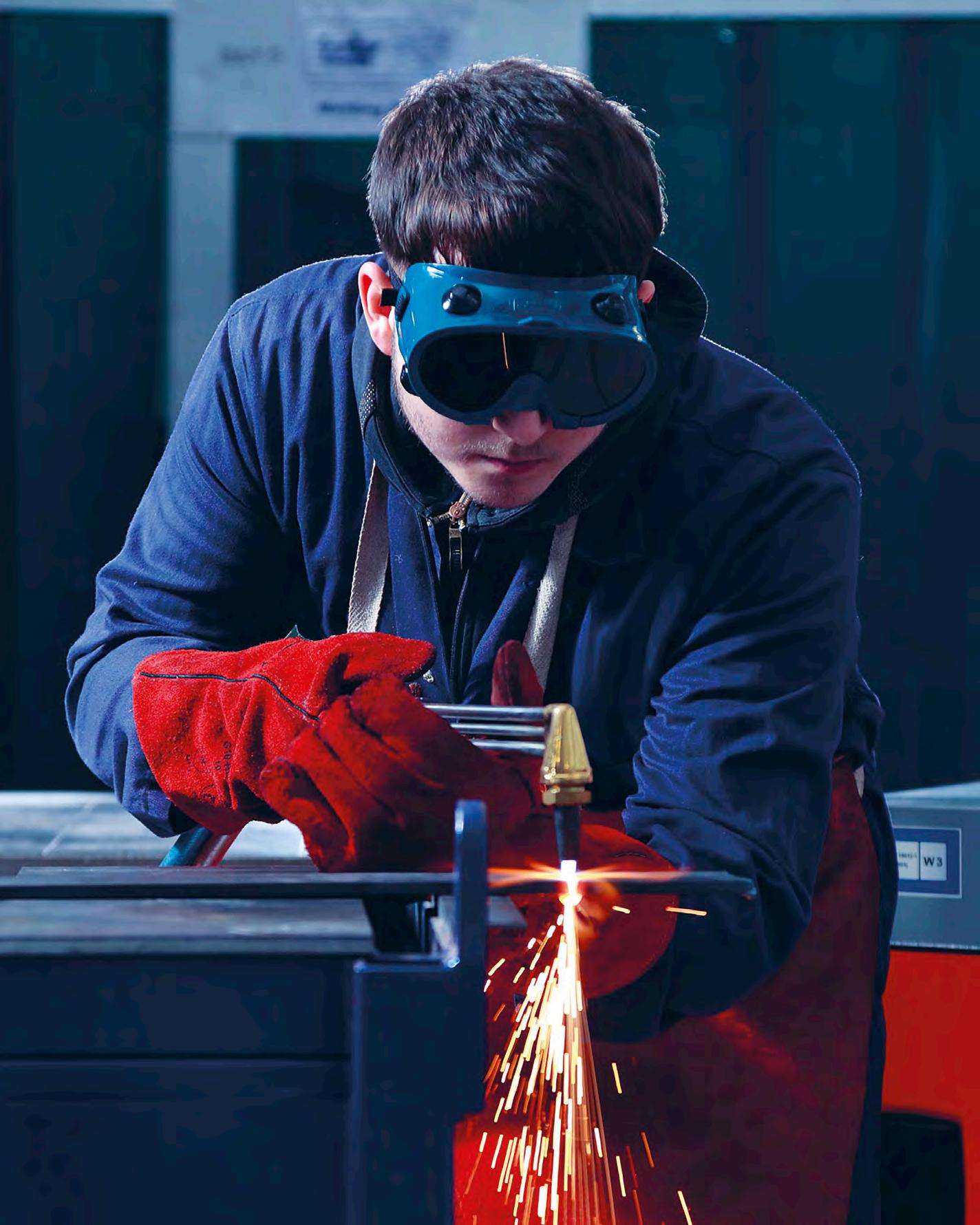
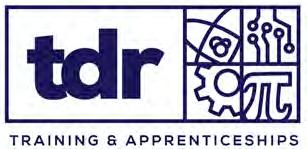
FINANCE SUPPLEMENT

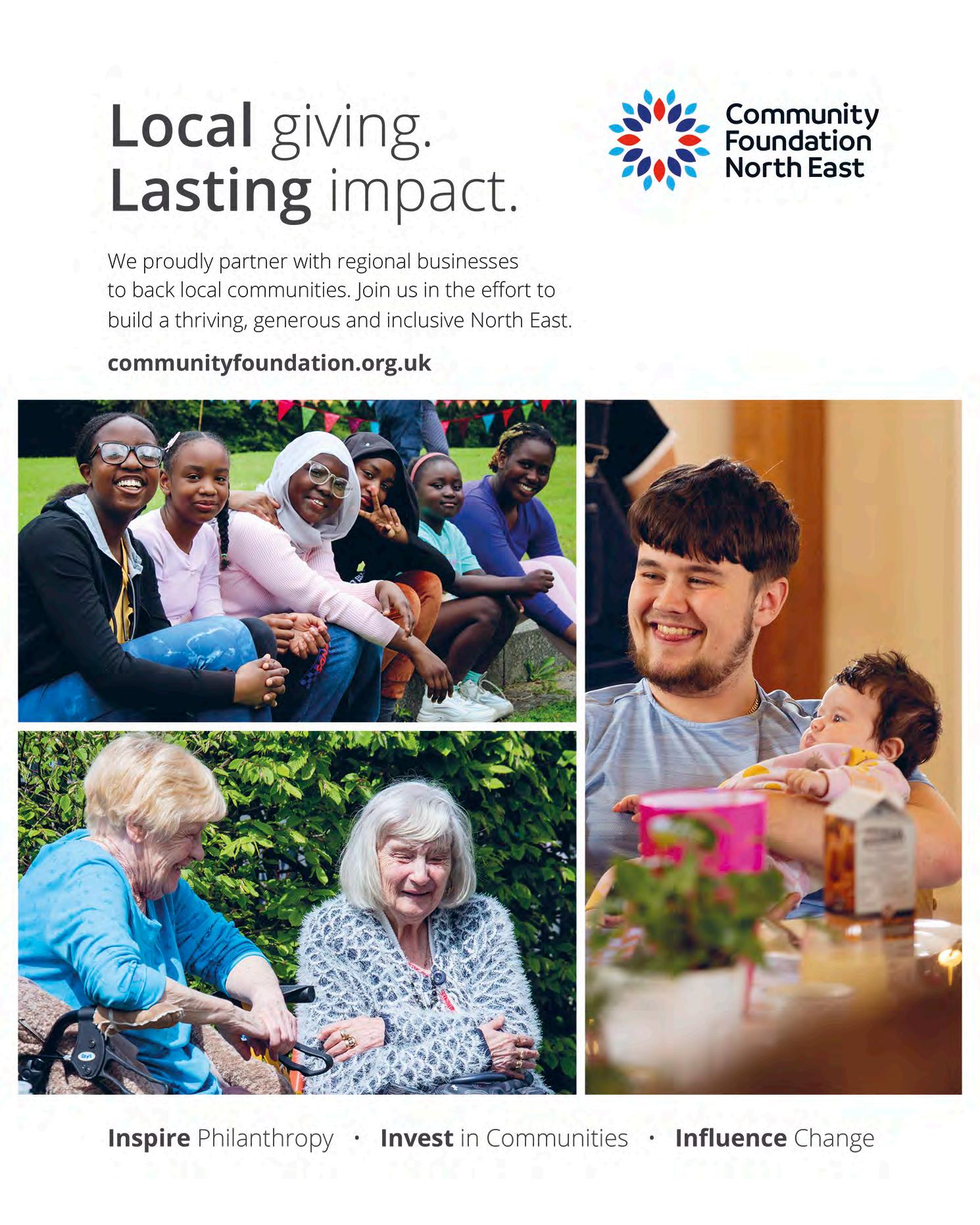
Providing the foundations for growth

Hello and welcome to this special finance and funding supplement, writes N magazine editor Steven Hugill.
The North East is moving forward at great speed.
From recent Government cash commitments and the increasing decision-making autonomy of mayoral-led combined authorities, to flagship arts investments and manufacturing, clean energy, digital and healthcare advances, our region stands at the foothills of significant change.
But to maintain its momentum, the North East – and its many commercial organisations therein – requires a robust finance and funding framework.
So long held up by firms of all sectors as a barrier to growth, this supplement shines a light on the individuals and organisations helping drive change across the region’s financial landscape – and the impact a strong and responsive structure can deliver.
Take Alex and Ross Longton, who have turned an idea sparked on an Indonesian holiday into the Tiba Tempeh plant-based superfood commercial endeavour now operating across the UK and Europe.
The Newcastle-based husband and wife team’s venture was recently boosted by sevenfigure support from the Northern Powerhouse Investment Fund II – via fund manager Maven – which the duo says will help boost product development and staff numbers.
Tiba Tempeh is one of many North East businesses backed by Newcastle, Durham and
Middlesbrough-based Maven, whose story is also highlighted in this supplement.
Spotlighting previous support for firms including Newcastle-based app developer Hedgehog Lab and Gateshead and Tanfield Lea-based iPac Packaging Solutions, partner Michael Vassallo reveals more about the depth of its support and the organisation’s future growth goals.
We also focus on FRP Corporate Finance, which is gaining increasing market traction thanks, in no small part, to the experience across its senior management team.
Graham Brown, Lucy Elliott, Mo Miah and Marc McDermott share insights into how their expertise is supporting mergers and acquisitions, investment deals and growth strategies across the region.
We speak to Ian Wilkinson, managing director at Perspective (North East) Limited, about the value of financial planning – from 18 to 80-plus – who reveals it is never too early to plan for tomorrow.
And we close by speaking to James Katirai, head of investment at Team Valley and Stockton-based NEL Fund Managers.
Highlighting the organisation’s support for SMEs through the Northern Powerhouse Investment Fund II, James talks about its commitment to helping companies thrive, the value of its long-standing regional focus and how he balances his professional life with grassroots football.
I hope you enjoy this supplement.
Steven
Navigating your financial life stages from 18 to 80-plus
Perspective (North East) www.pfgl.co.uk/northeast @perspectivefgl
Navigating the financial landscape can be challenging, with plenty of bumps in the road along the way. But with responsible planning, you can create a roadmap that both protects your wealth and leaves a lasting legacy for loved ones. Here, Ian Wilkinson, managing director at Perspective (North East) Limited, a Chartered financial adviser firm, shares with N magazine how its expert guidance can help you get the most out of your finances.
Financial planning: a task so often mentally filed away for later in life.
But as you progress through the decades, so too should your financial strategy evolve to reflect your changing circumstances.
The decisions you make today will shape your tomorrow, and by acting now, you can secure your future while laying foundations for generations to come.
And providing expert guidance to help you achieve such goals is Chartered financial adviser firm Perspective (North East) Limited, whose dedicated teams work with clients to tailor support around unique circumstances. Here, managing director Ian Wilkinson highlights how a staged approach to financial planning can deliver lasting benefits.
Aged 18 to 30
Starting out: Building foundations
In the early days, you’ll likely be focused on laying the foundations: building savings,
investment planning, managing debt and setting up a pension.
And by making minor adjustments to your financial roadmap at this stage, you can deliver a big impact further down the road.
Our expert teams will support you on areas including:
• Better ways to grow your savings
• Finding the best plan to help reduce debt
• Early pension contributions
Aged 35 to 50
Mid-career: Growing and protecting wealth
As your career progresses, your focus shifts towards growing wealth and protecting your family.
You may already have a solid plan in place, but by taking a fresh look at your financial situation, often from a more family-oriented perspective, you can uncover new ways to balance wealth building with protection.

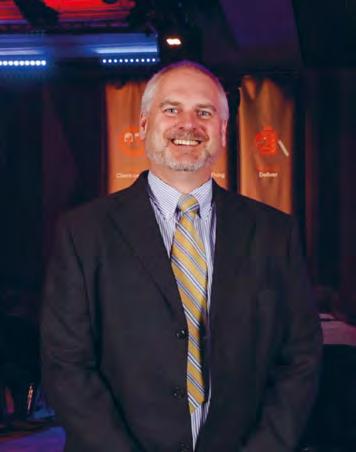
Our expert teams will support you on areas including:
• Aligning investments with current goals and tax strategies
• Decisions around saving for education or funding large purchases
• Safeguarding your wealth against unexpected events
Aged 50 to 60
Pre-retirement: Securing your future
As retirement approaches, ensuring your financial security becomes the main priority.
We will work with you to refine your approach, making sure you are ready for the next chapter.
Our expert teams will support you on areas including:
• Timing retirement without exhausting your finances
• Moving from growth-focused investments to enhanced income
• Adapting your plans to factor in longer life expectancy
Aged 60 to 75
Retirement: Managing your lifestyle and income
Retirement. A new lifestyle and new issues to address.
Financial planning is often more critical at this stage, as regular employment income options diminish and you switch to spending your capital.
Our expert teams will support you on areas including:
• Efficient withdrawals to reduce taxes and extend income
• Protecting assets for the long-term
• Enjoying retirement while ensuring savings last
Post-75
Legacy planning: Securing the future for your family
Many people leave legacy planning too late in life.
However, by starting early, you gain peace of mind, knowing your legacy reflects your values and intentions, and will provide for your loved ones in the most effective way possible.
Our expert teams will support you on areas including:
• Updating your estate plan and aligning it with your wishes
• Using all available options to reduce the tax burden on your family
• Regular and one-off gifting to reduce your estate
Tell the children
While mapping out your financial journey, it is vital to engage loved ones in discussions, not least younger members of the family.
Doing so fosters familiarity with your financial affairs and equips them to manage wealth responsibly and face their futures with confidence.
You can make a significant difference by:
• Involving younger generations to boost financial literacy in money management and investment
• Discussing shared objectives to align family goals for education, care and other needs
• Communicating inheritance plans clearly to prevent conflicts and misunderstandings
• Using tax-efficient strategies like trusts to enhance tax efficiency across generations
• Co-ordinating wealth transfer and estate management to secure long-term stability for your family
• Protecting against risks with joint planning, ensuring everyone is prepared with strategies such as insurance and estate planning
• Planning ahead for future financial needs of older family members
“You may already have a solid plan in place, but by taking a fresh look at your financial situation, often from a more family-oriented perspective, you can uncover new ways to balance wealth building with protection”
Perspective (North East)
Operating from more than 50 bases across the UK, which include Perspective (North East) Limited sites in Newcastle, Darlington, Stockton, Hexham and Harrogate, North Yorkshire, Perspective Financial Group’s local offices provide financial planning advice with client relationships that endure, on average, for more than 26 years and often span four generations of a family.
To find out more about its services, how it could support your financial plans and for office contact information, visit the website at the top of this article.
Maven leads the way in North East investment
Maven
www.mavencp.com
LinkedIn: Maven Capital Partners
Business growth is predicated upon many things, not least a robust financial support network. Central to delivering such is private equity firm Maven, which has delivered nearly £70 million in funding across the region. Here, Michael Vassallo, a partner at the firm, which has offices in Newcastle, Durham and Middlesbrough, tells Colin Young about Maven’s extensive portfolio and the delight it takes in helping North East businesses thrive.

Maven is one of the country’s leading private equity firms and its eight-strong North East team is helping shape the future of the region with nearly £100 million worth of funding.
The Glasgow-headquartered company, which has offices in Newcastle, Durham and Middlesbrough, has, for nearly a decade, invested close to £70 million, with two substantial funding programmes: the EUbacked North East Development Capital Fund and Business Durham’s Finance Durham Fund.
In addition, Maven, which has a long track record of supporting growth capital, management buyouts, equity value release and acquisition financing, is now managing part of the Government’s Northern Powerhouse Investment Fund, which could bring an additional £50 million to the region.
Maven has been assisting UK investors since its formation 16 years ago, and in its eight years in the North East has expanded from two staff and a base in Newcastle’s Grey Street to eight dedicated employees and three offices.
The team includes partner Michael Vassallo and investment manager Dr Michael Dickens – the firm’s original North East duo – who are joined by senior investment manager David Nixon; portfolio manager Rob Jones; investment associate Lucas Holmes; marketing associate Emma Neal; and investment manager Rebecca MacDermid.
An additional staff member is set to join shortly. South Shields-born Michael returned to the North East to lead the branch, and is proud
of the impact Maven is making with its investments.
He says: “I’ve always had it in my mind that I’ll feel we’ve made a real impact when we get to £100 million invested from client funds in the North East.
“And it is crucial we do so in a way that has made substantial returns for investors while creating sustainable jobs in the region.
“That’s the milestone we’re looking to get to, but it definitely won’t be the end of it.
“We’ll probably get there in the next two years, and there’s still plenty to do after that.”
As a member of Maven’s national investment committee, Michael is on hand to quickly support businesses already based in the North East, as well as attracting new ones to the area.
Speaking at its offices in Business Durham’s Salvus House, based at Aykley Heads on the outskirts of Durham City, Michael says the hands-on approach – with direct involvement from staff based locally – sets Maven apart from other private equity firms.
He says: “It’s still important to meet face-to-face in investing.
“You’re more effective when you’ve got local people working with local businesses.
“We’re developing expertise here, certainly in software, sciences, manufacturing and engineering, and we understand the specific challenges companies face in the North East.
“We’ve created more than 1000 good jobs in the kind of companies you’d want to work for, which are overseen by inspirational leaders.”
He adds: “I was privileged to work on the stock market.
“During that time, I got to sit across from plc chief executives and really exceptional business people on a weekly basis, and I learned so much from them.
“It’s still the same now.
“I sit with an entrepreneur who has the enthusiasm, drive and energy – they’re a different beast to most people – to help them.
“The other benefit, though, which you don’t always get from the stock market, is that you’re creating jobs in the North East, in the place where you live.
“When you get that real entrepreneur, and you look at the numbers and growth opportunities, and they tick all the boxes, that’s when you get really excited.
“Getting to be around these people, to work with them and assist them, is great.
“It’s the most exciting part of the job.”
After spells with Merrill Lynch and Ernst and Young, Michael joined the investment banking arm of Brewin Dolphin, where he worked with Sage and Reg Vardy and was heavily involved in the IPO of Vertu Motors, now one of the region’s largest companies.
He joined Maven in 2017 after a period with FW Capital, and has now been involved in more than 100 deals.
He says: “It’s going really well, and the office has been a big success.
“We’ve invested more than £30 million from the North East Development Capital Fund, with some notable exits and more in the pipeline.
“We manage the Finance Durham Fund, which is a £20 million fund set up by Business Durham.
“The aim is to raise the profile of Durham as somewhere to do business and also provide funding for existing and exciting high-growth businesses in the county to give the region’s economy a boost.”
He adds: “It’s an evergreen fund, so we can re-invest money forever and, as long as there are profits, there is always a surplus for the next deal.
“We’ve also recently completed the first year of the Northern Powerhouse Investment Fund,
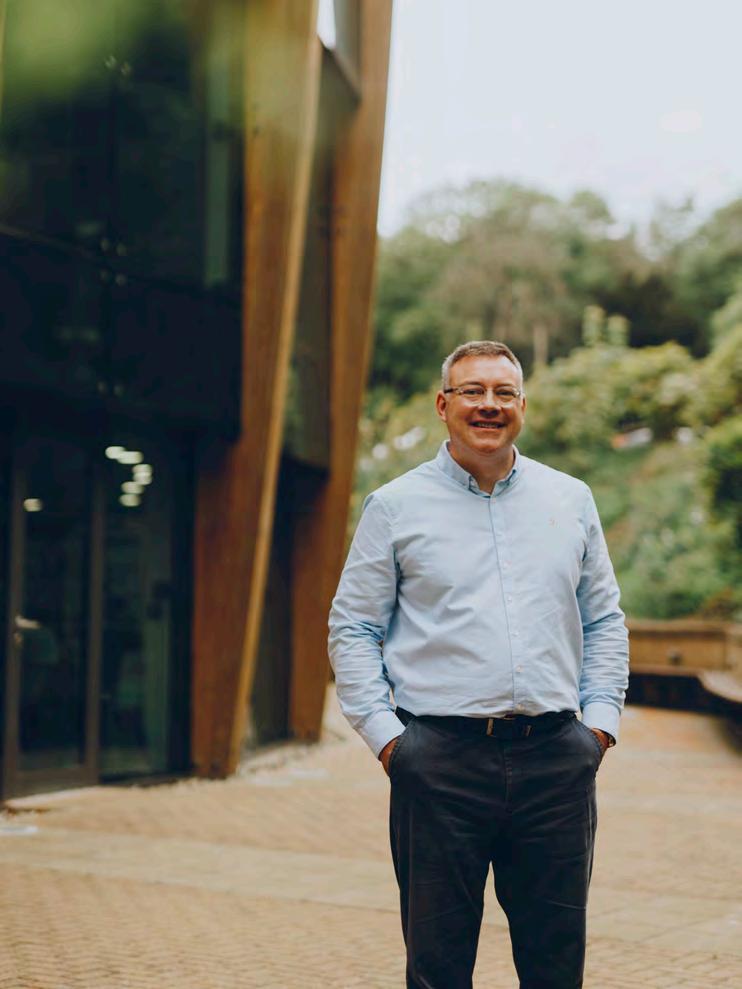
adding exciting new investees like Tiba Tempeh and Kani Payments.”
Among the successful investments, Michael cites one of the first deals with Newcastle-based app developer Hedgehog Lab – “which made a very healthy profit” – and the sale of Intelligence Fusion, a global security and intelligence firm that Maven took from a two-person start-up to US private equity.
It is also working with Gateshead and Tanfield Lea-based iPac Packaging Solutions, Seaham’s Power Roll and Dyer Engineering, which has sites in Annfield Plain and Harelaw, in County Durham.
Michael says: “These businesses have grown a lot.
“And if you ask the people who run them, they are ambassadors for Maven, who say we are a genuine part of their journey.”
For more information about Maven and how it could help your business thrive, visit the website at the top of this article.

Business ideas can spark at any time – just ask Alex and Ross Longton. Inspired by the flavours of an idyllic Indonesian beachside restaurant, they launched superfood firm Tiba Tempeh, which is now supplying restaurants, supermarkets and recipe box providers across the UK and Europe. Here, Colin Young speaks to the couple to find out more about their entrepreneurial journey.
www.tibatempeh.com
We’ve all sat in our favourite restaurant on holiday, tucked into the locals’ special of the day, and vowed to try and replicate the dish when we get home.
Alex and Ross Longton did just that – and more. They’ve gone from tasting tempeh for the first time at a beachside restaurant on Indonesia’s picturesque Gili Islands seven years ago, to creating a multi-million-pound business.
Welcome to Tiba Tempeh, where everything starts with three simple, natural ingredients –whole soybeans, live culture and water.
All naturally fermented into a tasty and healthy high-protein block, which can be sliced, diced or grated and used in stir fries, curries and pasta dishes, its range includes a smoky block, marinated pieces and tempeh mince.
The then young couple – who are now married and living near Newcastle with their two young children Jack and Lara – were still tucking into their first mouthfuls of a local tempeh speciality when they started researching it online.
Full of protein, fibre, vitamins and minerals, they knew instantly they’d unearthed a plant-based superfood, barely known in the UK, which could be the start of their entrepreneurial dreams. They also knew it would meet the needs of vegans, vegetarians like Alex, and the increasing number of people like Ross, who are seeking to reduce their meat intake while increasing their protein consumption.
Tiba Tempeh was launched in 2019 – Tiba (tee-bah) is the Indonesian word for arrive – and it is today the fastest-growing chilled meat-free product in the UK, occupying the shelves of major supermarkets both here and on the continent.
Alex says: “I remember we Googled it straightaway and thought, ‘this is the idea we’ve been waiting for’.
“We hired a little scooter the next day, and went around Bali to all the shops, buying all the different types of tempeh, which is traditionally wrapped in banana leaves.
“It was everywhere you went.
“We tried just about everything we could on that first trip.
“We then flew back to the UK, started our research and looked for manufacturers to help us make it at scale.
“We flew to Europe, hired a car and drove it around to factories that could potentially work with us – who hadn’t replied to our emails or phone calls – and knocked on the door.
“We went back to Indonesia the following year and visited Java, where tempeh was invented more than 300 years ago, and worked with a ‘Tempeh Master’, as he was called, who taught us exactly how to make the best tempeh.”
Ross adds: “It was good to really immerse ourselves in that world.
“Day in, day out, we were making tempeh and understanding all about it.”
While its story may originate in Bali, the company is now based in Ponteland, near Newcastle.
And the Longtons have ambitions to become the number one tempeh brand in the world.
“It’s all about thinking big,” says Ross, who is a Northumbria University graduate and former Ponteland High School pupil.
He adds: “We’ve got global aspirations; we’re already in some of the biggest supermarkets in the UK, Spain and France, but we’ve got to build it steadily and sustainably.”
Their ambitious plans were recently boosted by a £1.1 million investment from Maven Capital Partners through the Northern Powerhouse Investment Fund II, plus additional funding from Samworth Brothers, the owners of Ginsters and Soreen.
The new round of funding will bring in more staff and enhance marketing, sales and product development.
Ross says: “The investors are absolutely paramount, they help to accelerate the brand’s growth. I think Maven love it too.
“They’ve invested a lot in tech in the North East, and I think they love the simplicity you get with our product.
“Everyone has to eat and they really understood what we were trying to do with a more nutritious, healthy and sustainable product, which also addresses the huge need to find alternatives to meat.
“Unlike most meat-free products, our tempeh is made with natural ingredients and it’s minimally processed.
“It’s not trying to replicate anything; it’s a bit like tofu but tastier and more nutritious, with nearly double the protein content.
“People love the idea of trying something new and experimenting, and we know once people try it, they will buy it, which is exciting.”
Alex and Ross first met while working for Kraft Heinz more than ten years ago, so it is perhaps no surprise they combined to create a business taking the food industry by storm.
Brazilian Alex left her family home in Rio de Janeiro at the age of 15 to study in New Zealand – even though she could not speak English –and worked at Heinz headquarters near London, where Ross was established in marketing.
Alex says: “I did an international business degree in London, got a job offer at Heinz and when I looked at their address, the office was actually behind my house, literally 100 metres away.
“Ross had been there for four years – one of those talented people who came through the ranks quite quickly – and I progressed my career in the sales department.
“It was a huge corporate business, with about 400 people in the building, and we first bumped into each other in the corridor.
“My colleague then had a birthday party, invited Ross to come along and we got chatting.
“When we went out for our first dinner together, we had a conversation about what business ideas we had.
“Ross has built brands and new products, and always had the ambition to launch his own business, and I’ve got experience in sales and have had that entrepreneurial spirit in me since I was young.”
When they launched Tiba Tempeh, they initially worked after hours, while continuing to work full-time, before Alex quit to focus on the business and Ross eventually joined her within three years.
They then moved operations and headquarters to the North East.
Ross says: “It was Alex’s idea.
“She loves the people, and we both wanted to be closer to family and friends.
“Newcastle is our base and the investment will allow us to anchor ourselves and recruit here, which is so important for us.


“Hopefully, we can help galvanise and grow the food industry in the North East and attract more food businesses.”
Adopted Geordie Alex adds: “It took us about a year to build the operations and the supply chain.
“And when we presented it to the first customer, which was Planet Organic in London, the meeting went so well that the listing was agreed and I pretty much gave up my job.
“A couple of years after that, once we had a much bigger business, Ross gave up his corporate career, joined me full-time and we relocated here during COVID-19.
“Now we run it as a husband and wife business; we work alongside each other, and it’s the dream come true.
“Plus, I absolutely love it here. It’s our home. I would never move back to Brazil.”
Working as a husband and wife team has its challenges, Ross concedes, but they are clearly thoroughly enjoying it.
He adds: “You’re probably the most honest with your wife – and it can be amazing working together.
“If Alex doesn’t like something, she will say ‘well, that’s rubbish’.
“Sometimes that’s really helpful; you don’t have to walk around on eggshells, as you might in the corporate environment.
“You can say what you think.
“Sometimes you can be too honest with each other, which can create quite high tension,
but we’re aware of it, and we wouldn’t change anything.”
As well as supplying restaurants and recipe box providers, plus Sainsbury’s, Morrisons, Aldi and Ocado – not to mention Carrefour in France and Spain – Tiba Tempeh is now in 200 Waitrose stores across the country, including one in Ponteland.
If ever there was a moment of significance for the whole Longton family, it was the day their beloved boxes appeared in the Northumberland town’s Waitrose store.
Alex says: “We took our son with us, and he was just as excited as we were to spot our products on the shelf.
“When we moved up here, Ross did a lot of talking to customers in that store, to understand what we should do with our packaging and product.
“Even though we launched our brand six years ago, we’ve made a lot of changes and evolved the brand to appeal to the likes of Waitrose customers.
“I always say having kids is amazing, it’s incredible.
“It’s also really hard work, but when you see them growing and doing good things, it makes you really proud.
“It’s the same with our business.
“It’s our little baby that we launched six years ago, and the pride in seeing ourselves on the shelves in our local shop was the same.
“It’s just so exciting.”

Experience that delivers
FRP Corporate Finance
www.frpcorporatefinance.com
LinkedIn: FRP Corporate Finance
Whether in business, sport or everyday life, strong teams excel. Nowhere is that principle more evident than in FRP Corporate Finance’s Newcastle team.
Operating with a shared sense of purpose, it exemplifies the notion that the strength of a team is in each individual. Colin Young finds out more.
When Phil Williams and Abu Ali co-founded independent corporate finance boutique WilliamsAli six years ago, they set out to build an entrepreneurial, collaborative and trusted advisory firm.
That same spirit continues today under FRP Corporate Finance, following the acquisition of WilliamsAli last year.
Partners Phil and Abu are now leading a senior team of highly experienced advisers, positioning FRP Corporate Finance as a formidable force in the North East.
Their focus is to combine deep local insight with national scale and capability, operating as a unified team with a shared ambition.
To reinforce that vision, they have strengthened their team, bringing in practised professionals who deliver transactions with confidence, clarity and integrity.
Graham Brown – Associate director
Graham is a Chartered accountant and proficient dealmaker, with more than 15 years’ industry experience.
His expertise includes company disposals, acquisitions, due diligence and company valuations.
Graham has a strong profile in the North East and is well connected with the professional community.
Currently leading on two private equity-backed transactions, he is already shaping FRP Corporate Finance’s support for businesses in the region.
He says: “These are high-quality businesses driving local growth and creating jobs.
“Supporting them through such pivotal moments is hugely rewarding.”
Highlighting FRP Corporate Finance’s ‘peoplefirst, project-led’ ethos, he adds: “Our team structure means we collaborate in parallel.
“We draw on the knowledge of our local team and the experience of our national team – all while staying aligned.
“It is a real team effort.”
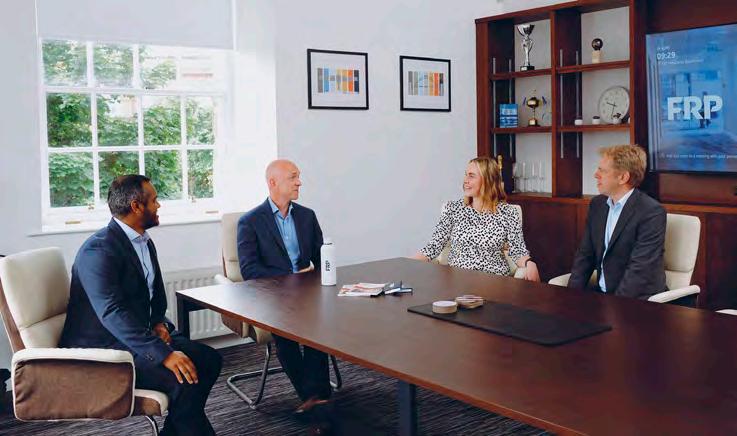
Lucy Elliott – Associate director
With more than 15 years of mergers and acquisitions experience, notably in cross-border disposals, Lucy is known for her depth of transaction expertise and unwavering client-first approach.
She highlights the breadth of experience within the team as a key differentiator in the North East.
She says: “We come from diverse sectors and backgrounds, which allows us to tailor advice to clients’ specific needs.
“That collaborative mindset is central to our approach.
“There’s genuine knowledge-sharing at every level, from partners to executives.
“And when needed, we work seamlessly across our wider service lines such as debt advisory, forensic services, restructuring advisory and financial advisory.”
With a balanced mix of technical capability and emotional intelligence, Lucy has quickly become a key part of the team’s dynamic.
She adds: “FRP Corporate Finance’s collaborative culture really brings out the best in people.
“It’s an environment where the client always comes first, and that commitment runs through everything we do.”
Mo Miah – Associate director
Mergers and acquisitions professional Mo has an impressive background, working on company sales, private equity transactions and fundraising projects with national and regional accountancy firms.
He says: “We’ve retained the spirit of a boutique, but now have the scale and infrastructure to offer a much broader service.
“We know this market well, and with a team that reflects different perspectives, we build stronger connections with a more diverse range of businesses.”
Marc McDermott – Director
Newcastle-based director Marc has 30 years’ financial and commercial experience, having previously held senior roles as a corporate banker and chief financial officer.
His dual perspective further enhances FRP Corporate Finance’s offer.
He says: “We’ve built an advisory proposition that’s genuinely unique in the region.
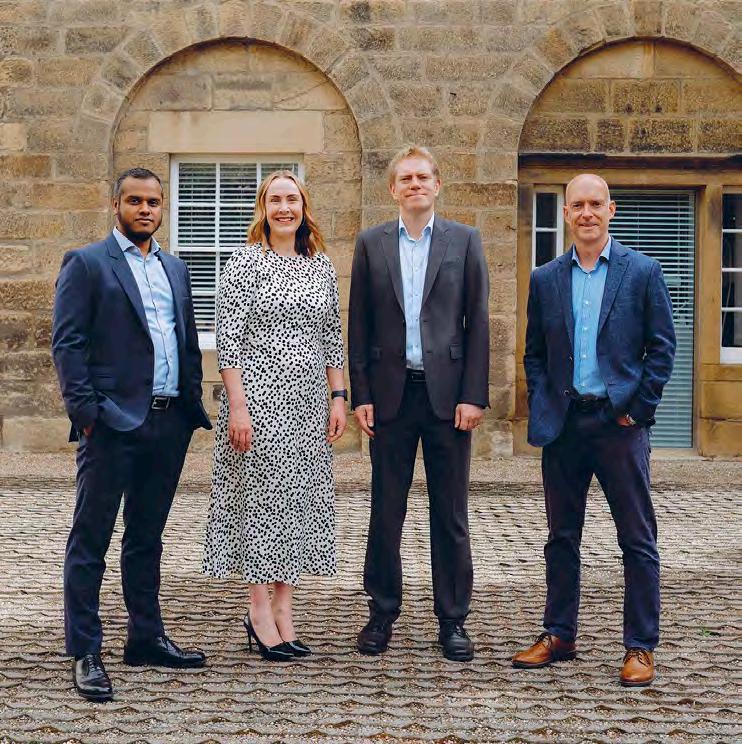
“If you combine our team’s experience locally with the expertise we can access nationally, it’s a compelling offer for businesses and their advisers.
“There are very few firms in the region that offer this depth of advisory capability backed by national reach.
“We have a team full of great people who are down-to-earth, pragmatic professionals offering advice that management teams and business owners really value.”
From boutique beginnings to regional leadership
The integration into FRP Corporate Finance has created new opportunities for clients in the North East, offering them access to a broader range of services and expertise, including FRP’s other pillars: debt advisory, financial advisory, forensic services and restructuring advisory.
With the additional infrastructure, resources and access to specialists now available, the integration has been a hugely positive move for the team and clients in the region.
The FRP Corporate Finance team in Newcastle isn’t just growing, it is thriving.
With a senior leadership team rooted in experience, insight and trust, it is setting the standard for what high-quality corporate finance advice looks like in the North East.
FRP Corporate Finance
For more information about FRP Corporate Finance, and the services it provides, visit the website and LinkedIn page at the top of this article.
A deep-rooted focus on the North East
Providing investment support to small and medium-sized businesses across the North East, NEL Fund Managers is helping add new chapters to numerous firms’ growth stories. Here, head of investment James Katirai tells Steven Hugill about the organisation’s mission, the value of its distinctive approach and how experiences in grassroots football continue to influence his professional journey.
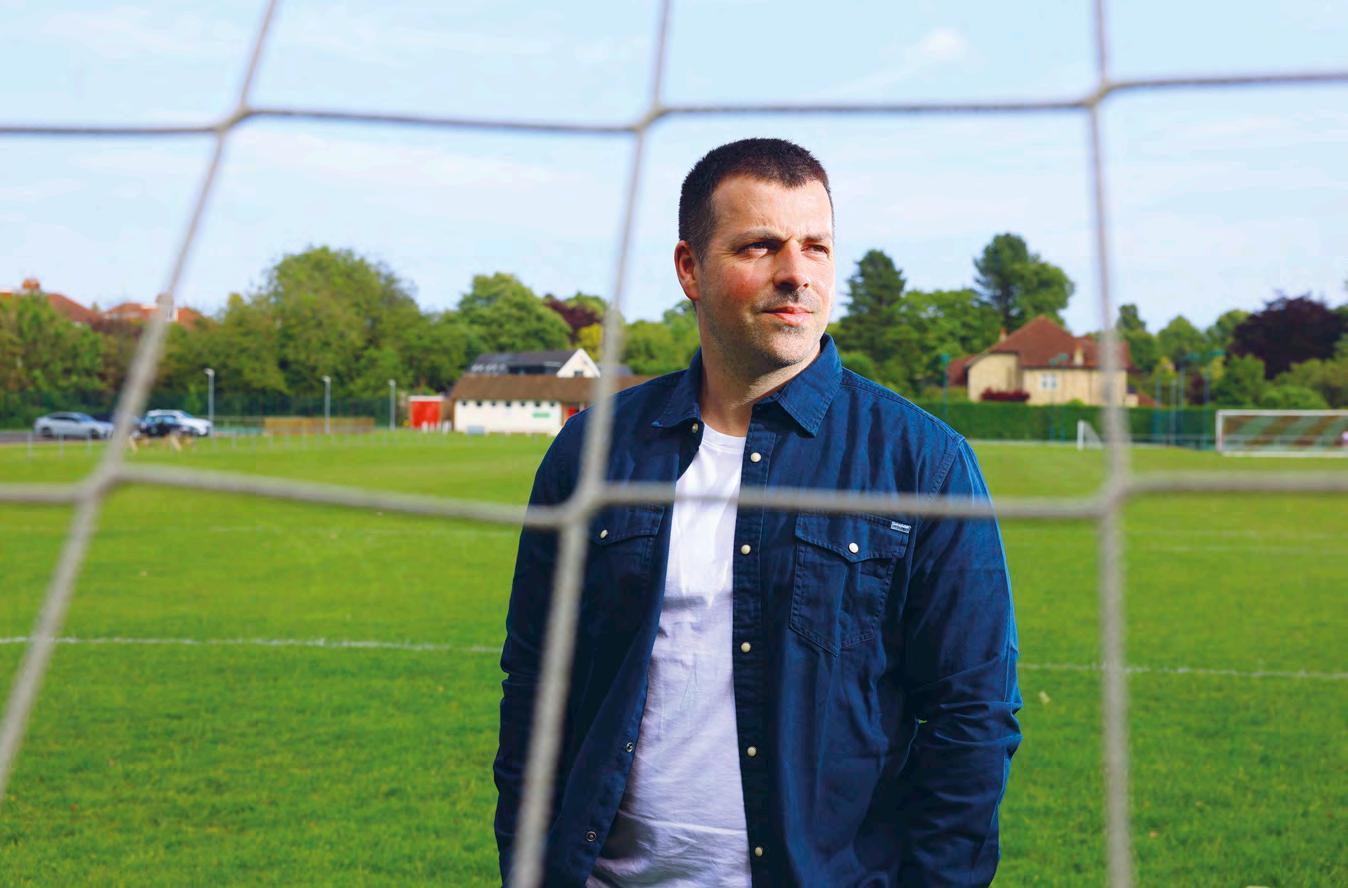
You’re head of investment at NEL Fund Managers. Can you tell us a little about your role and how it contributes to the organisation’s wider objectives?
I joined NEL in January to lead the investment team and help develop our offering for SMEs across the North East.
I work closely with intermediaries and SMEs to originate new investment opportunities focusing on their growth plans, structuring the appropriate funding and hand-holding the client through the process to completion.
NEL is a regional fund manager, so everything we do is focused on helping North East SMEs to grow.
My team and I are responsible for investing funds from £25,000 to £2 million across the North East, from Berwick down to Tees Valley, in a way that drives growth, creates jobs and supports the wider regional economy.
How does NEL Fund Managers’ approach stand out from other organisations in the investment space?
One of the main things that sets us apart is our deep-rooted focus on the North East.
We’re based here, we live here and we understand the businesses and communities we’re investing in.
We don’t rely on remote decision-making; our approach is local, personal and hands-on.
Our ‘more than capital’ approach enables us to build strong relationships with SME owners and offer holistic post-investment support.
NEL backs a range of businesses across the region. What does it typically look for in a potential investee?
We back ambitious, growth-orientated trading businesses across all sectors.
We look for strong management teams with a clear vision and a plan for how our investment will help them scale or evolve.
A business doesn’t have to be perfect, but it does need to be open to collaboration and ready to take that next step in its journey. Whether it’s funding a management buyout, investing in new technology or expanding
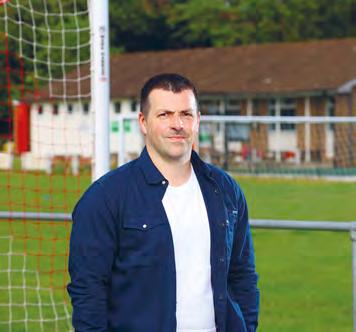
operations, we’re looking for ventures that will deliver lasting economic impact in the North East.
What are the biggest challenges facing North East businesses seeking investment in the present environment?
The financial landscape is more complex than ever.
Rising interest rates and ongoing economic uncertainty have made some lenders more cautious, and many businesses just aren’t aware of the full range of funding options available to them.
That’s why having regionally-focused investors like NEL is so important – we’re here to help businesses navigate those challenges and access the support they need to grow.
Away from the office, you’re heavily involved with Gosforth Bohemians Football Club. How did that come about?
I’ve always loved football, and after moving back to the North East, I got involved with Gosforth as it was my local team but also the oldest amateur club in the North East.
We have male, female and mixed gender teams from under-sevens to senior, with more than 450 players across the club.
I am treasurer and became first-team manager after retiring from playing in 2022.
It’s a close-knit club and has a real community feel to it.
After 28 years in Division One, we won the league and cup double in 2023/2024, and were promoted to the Premier Division.
In order to get promoted to the Northern League, we need to significantly improve the facilities.
We have ambitious plans for a new ground, supported by the Football Foundation, and are in the process of trying to raise significant funding to advance the project and give the people of NE3 something to be really proud of.
Has your involvement with grassroots football influenced your approach to leadership and teamwork in your professional role?
Definitely.
Managing a non-league team teaches you a lot about people across a range of ages and from diverse backgrounds – how to motivate them, get the best out of them and create a strong team culture.
Those lessons translate directly into my day job. Whether I’m working with a business owner or leading my own team at NEL, it’s about clear communication, trust and building something greater than the sum of its parts.
What makes the North East such a great place to live and work?
The professional community here is incredibly supportive.
There’s a real sense that we’re all working towards a common goal – to help the region thrive.
I also love how close everything is. I spend a lot of time up in Northumberland seeing family, or walking the dog with the kids along the coast.
It’s a great balance between professional opportunity and quality of life.
Tell us something about you we didn’t know… I was once the face of a national brand campaign for a previous employer.
Unfortunately, my acting talents were widely compared to those of David Brent from The Office…
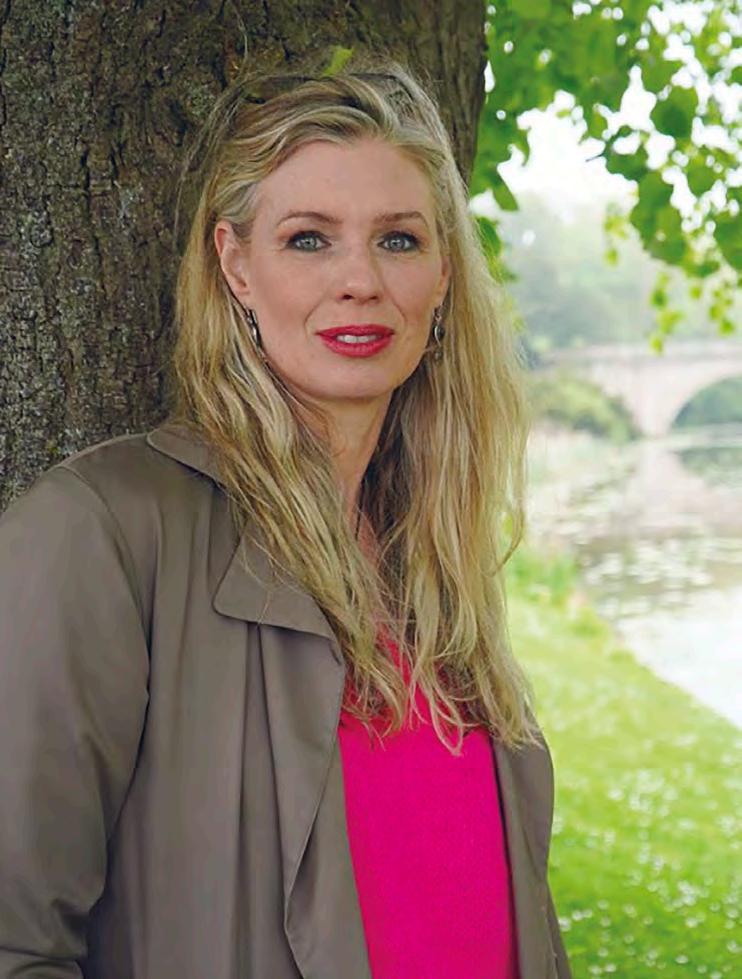
Bianca Robinson is chief executive of CEO Sleepout, the national charity uniting the business community in the fight against homelessness. Here, she tells Steven Hugill about the Middlesbrough-headquartered organisation’s origins, the impact it has made across its first decade and the plans in place to deliver even greater change in the years ahead.
MINUTES
WITH BIANCA ROBINSON
www.ceosleepout.co.uk
Tell us a little about CEO Sleepout and the inspiration behind its creation?
CEO Sleepout kicked off in 2013, thanks to Andy Preston.
Andy wanted to rally UK business leaders to take a stand against homelessness and poverty.
After two successful events at Middlesbrough FC and Newcastle United, the charity was officially formed.
Andy took it upon himself to grow the initiative, organising events across the UK in his spare time.
He asked me to come on board to help drive the charity in 2017.
It’s one of those rare roles that aligns completely with my sense of purpose, and brings together everything I love; leadership, campaigning and making change happen.
I’ve never looked back.
The charity has raised more than £5 million since its inception. What real-world impact have those funds had on the people and organisations it supports?
Since 2013, we’ve supported more than 200 frontline charities across the UK.
That money has gone into helping people in very tangible ways – putting food on plates, keeping roofs over heads and funding vital support services.
In Newcastle, for example, nearly £400,000 has been granted to support local charities assisting people at risk of eviction or those already homeless.
What does a typical CEO Sleepout event involve, and how do participants respond to the experience?
Our big-hearted business leaders spend a night sleeping outdoors, often in iconic venues like Lord’s Cricket Ground or Cardiff Castle.
It’s not about replicating homelessness but about gaining a glimpse into the challenges faced by those without shelter.
We usually hear from people who’ve lived through homelessness themselves, and their stories cut through in a way no stat ever could.
For many, it’s a moment of awakening and a call to action.
They leave more determined to be part of the solution.
CEO Sleepout was founded in Middlesbrough, but has grown into a national brand, with upcoming events in cities such as London, Manchester, Nottingham and Oxford evidence of its expansion. What does that geographic reach say about the strength of the charity’s message?
Our expansion across the UK underscores the universal resonance of our mission.
From Aberdeen in the North East of Scotland, to Portsmouth on the South Coast, and everywhere in between, business leaders are recognising the role they can play in addressing homelessness and poverty, and how they can be part of the solution.
The widespread participation reflects a collective commitment to social responsibility and community engagement.
I believe SME businesses have the power to uplift communities and strengthen the very
fabric of society.
What prompted you to join the fight against homelessness, and are there any stories or encounters from previous years that have stayed with you?
Every person who has lived through – and overcome – homelessness has a story, and all have stayed with me.
I encourage our community to see someone who is homeless as a mirror – someone with the same hopes, dreams, talents and desire for care and love as we all have.
Our primary lived-experience ambassador Kerri Douglas inspires me every day.
Kerri was in care as a child, and lived rough around Charing Cross and Piccadilly from the age of 13 to 24.
Her journey has been tough, but now she’s a sought-after speaker and author, and helps organisations understand homelessness in a much deeper way.
She’s living proof of what is possible, and why we do what we do.
What are your ambitions for CEO Sleepout over the coming years?
We aim to deepen our impact by expanding our reach and forging stronger partnerships with businesses and communities.
We’re now investing in projects that leave lasting impact and create a positive legacy.
We will continue raising awareness and funds through events and partnerships to support those affected by homelessness and poverty, uniting SME leaders behind our call to create communities where nobody gets left behind.
Un-dispute-d champions
Muckle LLP
www.muckle-llp.com
LinkedIn: Muckle LLP
What do a spare house key and a dispute resolution lawyer have in common? You don’t tend to think of needing them until it’s too late – usually when you’re already locked out of your house or locked into a legal dispute. Here, Susan Howe and the dispute resolution team at Muckle LLP highlight how having the right support can make all the difference.

When you start a new project, whether it’s setting up a new business or collaborating with a new supplier, the last thing on your mind is probably any potential disputes.
However, you could argue (see what we did there?) that disputes are inevitable.
“Commercial disputes can occur for all sorts of reasons, from differing interpretations of contractual terms to shareholder disagreements,” says Susan Howe, partner and head of dispute resolution at Muckle.
She adds: “Once a dispute begins, it can snowball quite quickly, and with mounting financial – and often personal – costs.
“That’s why a dispute can make or break a business, particularly an SME.”
Local heroes
With more than 35 years’ experience, Susan knows a thing or two about dispute resolution.
Having honed her skills at two of the biggest law firms in the UK – ‘Magic Circle’ firm Slaughter and May, and Eversheds Sutherland – Susan joined Muckle in 2010 to develop the firm’s commercial litigation offering.
Now, 15 years later, Susan leads not only one of the fastest-growing teams at Muckle, but also one of the largest dispute resolution teams in the region.
She says: “People often think you need to go to London or another bigger city for dispute resolution.
“At Muckle, we specialise in high-value, multiparty, cross-jurisdictional work, and we pride ourselves on our ability to carry out the bigticket work that other regional firms can’t.
“For example, we are one of the only regional law firms that offers specialist music and media dispute resolution expertise.”
The ball’s in your court
Litigation – the process of taking a dispute to court – is probably what you think of when you think about what lawyers do.
From famous TV dramas like Boston Legal or Suits, or reading about Ed Sheeran’s latest copyright battle, litigation is everywhere.
And, while litigation can be an appropriate and effective way of resolving a dispute, it is only one of the options that fall under the dispute resolution umbrella.
Despite her litigation expertise, Susan understands the importance of offering clients the full package when it comes to resolving disputes.
She says: “We don’t just say that we’re experts in litigation.
“Getting the right result for the client is important, but it’s also important how you get to that result.
“We’ve got so many tools at our disposal to get the best outcome for our clients; strategies, tactics and negotiation all play an incredibly important role.
“In addition, we see more and more cases that bypass the court altogether and are instead determined by some form of alternative dispute resolution (ADR)”.
Solving – not creating – problems
It has long been established that ADR is a solution for commercial disputes.
In fact, the courts can order parties and their lawyers to consider ADR where suitable.
Susan says this works in Muckle’s favour.
She says: “We’ve always been of the mindset this is the right way to approach disputes, that’s why our team is named dispute resolution and not litigation.
“We’re a commercial law firm, and where ADR
“At Muckle, we specialise in highvalue, multi-party, cross-jurisdictional work, and we pride ourselves on our ability to carry out the big-ticket work that other regional firms can’t ”
makes commercial sense for our clients, we’ll always pursue it.
“In most cases, it’s more cost-effective and better for maintaining relationships in the long run.
“Nobody wants to land on the losing side of a court battle.
“ADR focuses on collaboration and finding mutually agreeable solutions, which offers opportunities to preserve relationships and a more constructive resolution to a dispute.
“However, if ADR fails, or isn’t appropriate for some reason, we have the skills to take the matter all the way through the litigation process and win.”
Award-winning legal advice
It is that commercial approach which has led to the success of Muckle’s dispute resolution team.
Described in Legal 500 as having a “versatility of approach that permits them to work in a wide range of industry sectors”, the team can support in various specialist disciplines including contentious construction, procurement and technology disputes, and contentious trusts and probate, as well as music and media.
Susan was named Dispute Resolution Lawyer of the Year at the Legal 500 Northern Powerhouse Awards, as well as being listed in the Hall of Fame in 2025’s Legal 500 rankings, which recognises “lawyers at the very top of the profession, widely known and respected by peers and clients for their longstanding involvement in market-leading work”.
But despite her successes, Susan is particularly proud of the work she’s done in building up the team.
She adds: “I lead a brilliant team of individuals who deliver a range of legal specialisms.
“They are all fantastic to work with and exceptionally good commercial lawyers.”
Muckle
To learn more about Muckle’s dispute resolution team and the support it provides, visit the website at the top of this article.
Transforming futures through education
Northumbria University www.northumbria.ac.uk/giving LinkedIn: Northumbria University
Partnerships play a powerful role in breaking down barriers to education. And at the heart of such collaboration in the North East are IntoUniversity centres, which – supported by Northumbria University, Newcastle University and generous donor organisations, charitable trusts and foundations and individuals – are helping transform the futures of young people facing disadvantage. Here, senior university and industry figures highlight the value of collaboration in shaping student successes by driving social mobility to create a more flexible, diverse and inclusive workforce.
Collaboration is a cornerstone of success.
Whether driving business expansion or addressing social and economic challenges, strong partnerships lay foundations for lasting impact.
The power of robust relationships is equally evident in education.
And nowhere is it more clearly demonstrated than through the work of IntoUniversity Centres in Newcastle and Gateshead.
Developed by national education charity IntoUniversity, and delivered in partnership with Northumbria University, Newcastle University and supporters, the centres help young people facing disadvantage between seven and 18 build academic and soft skills that unlock brighter futures and successful careers.
Through first-hand learning in a non-school context, the centres provide tailored education and personalised feedback to students, who can work at their own pace.
Providing guidance on areas including homework and coursework, revision,
secondary school transition, university and job applications, the centres also help with interview techniques and career options, with the latter supported through work experience placements and paid internships.
Northumbria University provides outreach support for the centres through its Higher Education Without Barriers fund, which has more widely helped more than 2500 students from traditionally under-represented backgrounds to access – and succeed at –university and progress through experiential learning opportunities with university corporate partners.
And the impact of the Newcastle-based IntoUniversity centre has been transformational.
Since opening in late 2021, the hub – based in Monkchester Community Centre and known as Newcastle East – has worked with more than 2100 students, with 64 per cent of its school leavers progressing to higher education in 2024.
The latter figure stands more than five times higher than the local average.
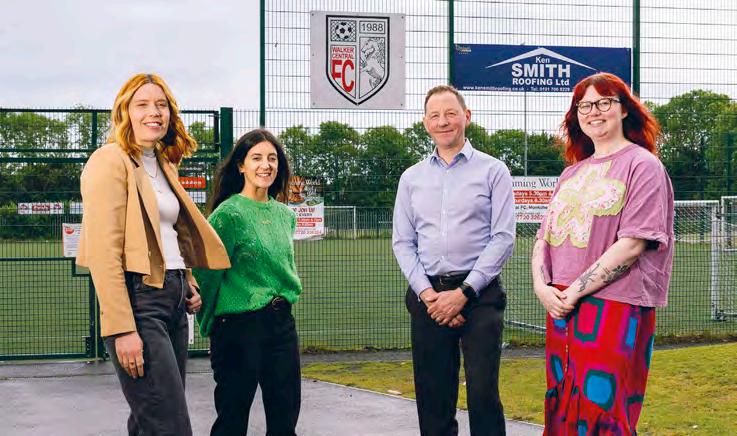
In addition, more than 130 Newcastle East centre students have gone on to study at university, the majority of which within the North East, helping to provide a pipeline of talent for the region’s future workforce.
One of those learners is Northumbria University law undergraduate Hiven Ahmedkarim.
She says: “As a first-generation university student, attending IntoUniversity helped me develop key skills, confidence and aspiration to apply to university.
“The staff gave me advice and encouragement and supported my application process to Northumbria.
“Talks by corporate partners and mentoring by current university students were inspiring.
“I am now confident and motivated for a career in law.”
And such has been the success of the Newcastle East centre that Northumbria and Newcastle universities expanded their partnership with IntoUniversity to open a second centre in BizSpace Design Works, in Felling, in the spring.
Mirroring the support delivered at Newcastle East, the Gateshead base is working with students on a structured programme of activities.
The Newcastle East centre is backed – past and present – by multiple organisations, including The Barbour Foundation, Siemens Energy, Enterprise Mobility, St Nicholas Educational Trust, Agile Business Consortium, Catherine Cookson Charitable Trust, Hachette UK and Sir James Knott Trust.
It is also supported by long-term Northumbria University partner, Newcastle-based international architectural practice Ryder Architecture, which is set to provide almost £250,000 over the next five years through donations and pro bono support.
Ryder’s work with Northumbria University forms part of the company’s wider social value programme, which also includes engaging with schools to drive careers development, the Ryder Bursary and its PlanBEE higher apprenticeship programme.
Mark Thompson, Ryder’s managing director and Northumbria University alumni, says: “We’re extremely proud of our community impact work, which is focused practice-wide on educational initiatives that support, inspire and equip young people with the skills to achieve their full potential.
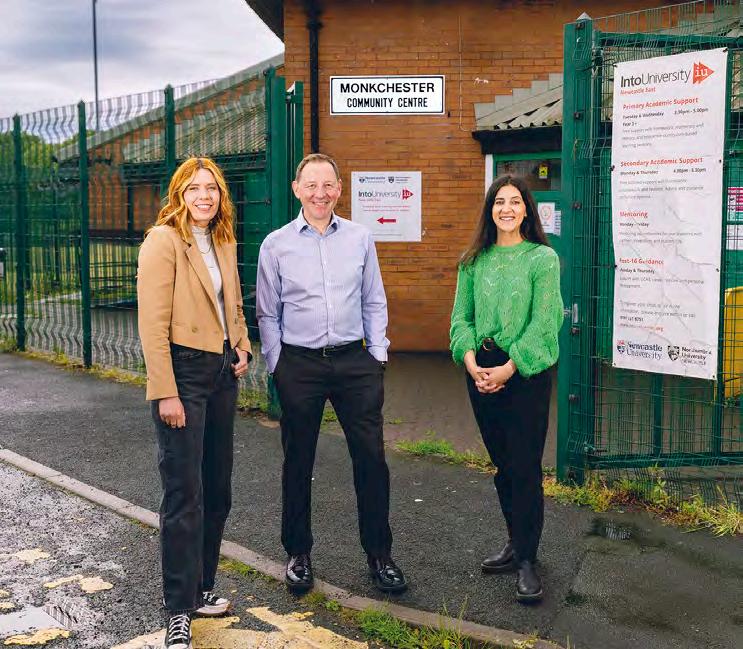
“Having worked with Northumbria University for more than three decades, it’s great to extend our relationship to inspire and encourage future generations to consider higher education.”
Dan Monnery, Northumbria University pro vice-chancellor (external affairs), says: “We have worked with Ryder for many years, and we’re delighted they are supporting our IntoUniversity Centres so generously.
“They are an important strand of our commitment to our city and region, delivered through our partnership with IntoUniversity and Newcastle University.
“They demonstrate our ambition to inspire and support young people to open opportunities for themselves through education.”
Dr Rachel Carr, IntoUniversity co-founder and chief executive, adds: “The young people we support are often under-represented in academic and corporate spaces, and rarely get the opportunity to experience these environments growing up.
“IntoUniversity is hugely grateful to Ryder and the supporters of our centres for their invaluable contributions.
“A core part of our programme is helping young people feel these are careers they can aspire to, which would not be possible without corporate supporters like Ryder.
“We look forward to continuing to work with Ryder and our university partners to inspire young people in the North East.”
Northumbria University Northumbria University is seeking partners that share its social mobility ambitions to provide philanthropic support for the delivery of the education programme across its IntoUniversity centres, as well as experiential learning opportunities for attendees.
For more information, contact peter.storey@northumbria.ac.uk or james.wilkinson@northumbria. ac.uk, or visit the website at the top of this article.
Creating a region without barriers

Collaboration is key to the success of any venture. And through its alliance with the North East Chamber of Commerce, The Glasshouse International Centre for Music is creating cultural opportunities for people across the region and beyond. Here, creative director Wendy Smith shares how the venue is marking 20 years at the heart of North East culture, and why collaboration, creativity and community will be key to its future.
Tell us a little about The Glasshouse International Centre for Music and its core mission
The Glasshouse is a home for live music lovers.
We’re a place where music of all kinds happens side-by-side.
You might catch a pop icon or rock legend in one hall, and discover a rising folk trio or worldclass string quartet in another.
It’s also a place where toddlers with tambourines, youth choirs and our resident orchestra – Royal Northern Sinfonia – rehearse under the same roof.
Since opening in 2004, we’ve welcomed more than eight million people through our doors, reaching millions more through livestreams and community projects across the North East.
And as a charity, our mission has always been to make music a part of everyone’s life, no matter your background, age, income or experience.
We’re here to create and celebrate outstanding music, whether that means welcoming global stars on our stages or helping someone pick up an instrument for the first time.
Every year, more than two million people join us for gigs, concerts, classes and music-making.
So whether you’re making it up or taking it in, music lives and grows here.
The iconic riverside venue is celebrating its 20th anniversary this year. What events are planned to mark the milestone, and what can audiences expect as the revered cultural hub enters its third decade?
www.necc.co.uk
LinkedIn: North East Chamber of Commerce
www.theglasshouseicm.org
Instagram: theglasshouseicm
We’re marking 20 years of unforgettable music and looking ahead to an even more ambitious future.
Our anniversary celebrations began in November with a major performance of A Child of Our Time – a large-scale collaboration bringing together more than 300 musicians and singers, performing alongside Royal Northern Sinfonia and Chorus.
It was a powerful moment of mass musicmaking, and a fitting celebration of everything The Glasshouse stands for.
But this milestone year isn’t just about looking back, it’s about what comes next.
We’re launching a new music academy to support the next generation of musicians and artists, from babies just starting out to those taking their first professional steps.
We’ve also welcomed a group of new artistic partners, including The Unthanks, Corinne Bailey Rae, Maria Włoszczowska, John Wilson and Sinfonia of London, as well as music director Dinis Sousa, to shape our creative future.
At the heart of it all is our commitment to access.
We’re aiming to become the most affordable music centre in Europe, building on work like our £10 tickets for under-30s, pay-whatyou-decide gigs and free music passes for newborns.
To support these plans, we’re building towards a £20 million fundraising campaign, helping us invest in our programme, our people and the iconic riverside building we call home.





So, 20 years in, we’re still full of energy.
We’re ready for the next decade, our most creatively ambitious era yet, and to open up music for more people than ever before.
The Glasshouse International Centre for Music is a North East Chamber of Commerce partner member. What value does that relationship deliver?
Our partnership with the Chamber connects us more deeply with the wider business community and gives us valuable insight into the economic trends shaping the region.
It also gives us access to senior decisionmakers at regional and national levels, which strengthens our policy work and helps us advocate more effectively for culture’s role in the North East.
Above all, we value the shared conversations and exchanges of ideas that come from working alongside the Chamber team and its members.
Your alliance extends to hosting flagship events, not least the Chamber Business Awards, which took place in June and have been a fixture in the venue’s calendar for a number of years. What does it mean to be the setting for such high-profile, regional crosssector celebrations?
We’re always delighted to welcome people into our building – not just for music and education, but as a hub for conferences, celebrations and major regional moments.
Hosting Chamber events like the Business Awards helps underline how much we’re a part of the fabric of the region – not just as a building or arts organisation, but as a civic space.
It’s always a pleasure to see so many organisations and individuals from across sectors come together under one roof to recognise talent, innovation and shared success in the North East.
How do the North East Chamber of Commerce’s ambitions for the North East align with The Glasshouse International Centre for Music’s vision for the region’s cultural and economic future?
We share a belief in a fairer, stronger and more connected North East; one where everyone can thrive.
Our vision is for a region without barriers where everyone, regardless of their background or resources, can access music of the highest quality, whether as an audience member, a participant or a performer.
That vision includes a flourishing economy where everyone can thrive and enjoy a good quality of life.
There is overwhelming evidence that arts and culture contribute directly to economic growth, better health and education, more innovation and greater happiness.
The Glasshouse has generated more than £1 billion in economic and social value – a clear example of the impact that sustained cultural investment can deliver for a region.
Like the Chamber, we want to build a region where creativity, collaboration and opportunity go hand in hand.
What advice would you give to other organisations considering becoming a North East Chamber of Commerce member?
The more you put in, the more you get out.
If you participate actively, Chamber membership can add real value to your organisation, from building networks and influence, to staying better informed and shaping the future of the region.
“Every year, more than two million people join us for gigs, concerts, classes and music-making”
Helping entrepreneurial ventures thrive
YALLA! LET’S GO yalla@jccg.org.uk
Founding and scaling a business is never easy. From fierce competition to financial hurdles and building the right team, the journey is filled with challenge. Help, though, is at hand, not least through the YALLA! LET’S GO project, which is supporting entrepreneurs across Gateshead’s Orthodox Jewish community to turn bold ideas into thriving ventures. Here, Steven Hugill speaks to David Fordsham and Devorah Rosenthal to learn how their businesses have benefited from the scheme.

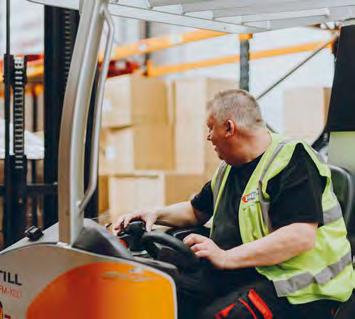
The drive for business growth often follows a circuitous path.
From sharp market turns to commercial cul-desacs, the road to success is rarely a straight line.
Indeed, reaching key milestones typically demands an array of directional aids, not least a detailed expansion strategy, a robust financial framework and a healthy skills pipeline.
Sometimes, though, the route is a little more serendipitous.
Just ask David Fordsham.
Like countless other business leaders, he found himself at a crossroads when COVID-19’s crosswinds mercifully began to ease.
And waiting to signpost his next move was YALLA! LET’S GO.
Backed by Government funding, the project helps entrepreneurs masterminding commercial endeavours – from cottage startups to larger operations – within Gateshead’s Orthodox Jewish community gain greater marketplace traction.
From dedicated workshops to expert mentoring and access to growth grants, the scheme, led by the Jewish Community Council of Gateshead with support from Gateshead Council, is helping businesses rewrite expansion blueprints.
And for David, managing director of Low Teams-based Fulli’s, which was founded in 2003 and supplies stationery, paperware, baking and cleaning supplies across the retail and wholesale sectors, the impact has been profound.
He says: “The programme arrived at the right time for us.
“Like all businesses, everything changed after COVID-19, and we tried different things to help our progress, including restructuring and website improvements, but nothing really paid off.
“And then YALLA! LET’S GO came along.”
Central to the business’ support was access to industrial acumen, which, in Fulli’s case, meant time with serial North East entrepreneur – and YALLA! LET’S GO volunteer – Dr Roy Stanley.
Tapping into years of experience leading Newcastle-based Ground Six – the portfolio of companies that includes eco-friendly personal products firm Tango Group – Dr Stanley provided mentorship across a number of areas.
David says: “The programme opened avenues for us, not least Roy, whose support has been absolutely incredible.
“He came to see us a number of times, sat in sales meetings and gave us a lot of confidence in what we were doing, while also providing constructive comments.
“He helped us break down where our focus and investment should be.
“He also highlighted the importance of creating a strong team.”
With Dr Stanley helping refresh Fulli’s operational strategy, David – whose business supplies hygiene and janitorial products to clients including schools, colleges, pubs and clubs – accessed YALLA! LET’S GO’s specialist support network to address another facet of the business’ growth journey: sales and marketing.
The move united him with sales coach Moira Barnes, whose input is helping unlock new commercial opportunities through a reshaped approach to sales communication.
David says: “Moira came to see us, assessed some of the things we were doing and suggested some fresh marketing ideas.
“They included outsourcing sales calls, and we’re now running a six-month trial with someone recommended by Moira.
“We are very happy to challenge ourselves to develop new channels, and Moira helped us do just that.”
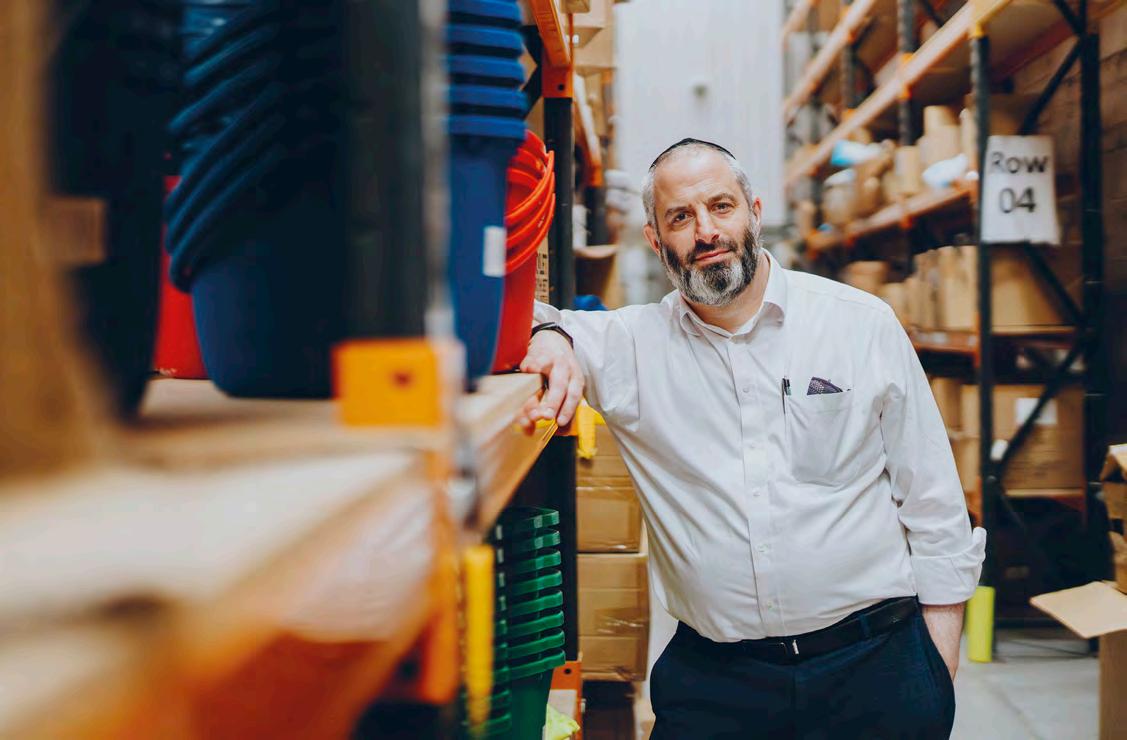
YALLA! LET’S GO’s impact has been equally felt by Balloon Design Gateshead founder Devorah Rosenthal.
Formerly an aerobics instructor, she retrained more than a decade ago to launch her homebased balloon art venture.
Having built a bank of clients through supplies of colourful displays for birthday parties and community events, she last year turned to YALLA! LET’S GO to strengthen corporate sector ambitions.
And its influence has been substantial.
After helping Devorah secure a grant to support the purchase of a sought-after outdoor balloon arch frame – which immediately yielded work with Asda’s Benton store – the project paved the way for her to take part in May’s North East Expo at Newcastle Racecourse.
The latter was catalysed by the programme’s business expert referral network, which introduced Devorah – who also supplies schools, brand launches, shop openings and award events – to Nicola Halse, of Wearsidebased Riverside Marketing Solutions.
Devorah, who undertook London-based balloon art training after deciding to leave the fitness sector, says: “The programme hosted a presenter-led breakfast event, which covered a number of business aspects.
“We were then able to speak to a presenter and I chose Nicola because, as a marketing expert, she knows what is working for a whole range of businesses.
“Nicola recommended I go to the North East Expo, and has provided support on areas like
social media hashtags and other business events to attend too.
“She has also provided fantastic tips on how to engage with local businesses.”
The latter support strand, says Devorah, is also a crucial part of YALLA! LET’S GO, with the programme having fashioned an ecosystem that allows participants to refine strategies by sharing cross-sector experiences.
She says: “Owning and running a business can be lonely; I don’t have people to bounce ideas off.
“And that is why YALLA! LET’S GO is so good.
“You get to meet other businesses, often from different industries, who are going through the same things as you, and we have lots to gain by telling each other our stories.
“I’ve made new connections through YALLA! LET’S GO; it is a very valuable resource for meeting new people.”
And right at the heart of those relationships –and the entire YALLA! LET’S GO programme –is project lead Mrs Spitzer, whose work linking entrepreneurs with industry experts has, say Devorah and David, been fundamental to its success.
Devorah says: “Mrs Spitzer has a great picture of the businesses across the community, and is a fantastic facilitator.”
David adds: “Mrs Spitzer was fascinated about our business, and was the person who put us in touch with Roy.
“She really wanted to help us get to the next level.”
YALLA! LET’S GO
For more information about the YALLA! LET’S GO project, email yalla@jccg.org.uk
A personal approach to employment law
Hay & Kilner
www.hay-kilner.co.uk
LinkedIn: Hay & Kilner
From associate solicitor to employment team partner and commercial division lead, Sarah Hall’s two-decade journey at Hay & Kilner is the perfect embodiment of progression and purpose in action. Here, she tells N magazine about the firm’s people-first employment law focus and how its team is guiding employers through change with clear advice rooted in deep sector experience.

Sarah Hall is a partner in Hay & Kilner’s employment law team and head of the firm’s commercial division, based at its office in The Lumen, Newcastle.
Hay & Kilner is a modern, full-service law firm with a long-established reputation and proven track record.
Sarah has been advising clients on all aspects of employment law for more than 25 years, and is well known for her pragmatic approach, ensuring her advice and support meets clients’ values and objectives.
She celebrated her 20th anniversary with the firm in 2024, having joined Hay & Kilner as an associate solicitor.
Sarah says: “At Hay & Kilner, we take pride in our supportive culture and outstanding retention rates, which we believe is a sign that we’re doing something right.
“Personally, I can attest to this, as I’ve been with the firm for more than 20 years, beginning my career as an associate solicitor in the employment team and progressing quickly through the ranks.
“I couldn’t imagine being anywhere else, and it’s fantastic to know many of our colleagues feel the same way as we continue to grow.
“We recognise how important development and progression is to our colleagues, and we recently introduced a new performance review process to better support this at every level.
“We are also continuing to take steps to embed our coaching culture, which empowers our colleagues to take their own decisions while nurturing a sense of ownership.”
Employment law and HR advice
A member of the Employment Lawyers Association, Sarah acts almost exclusively for employers across a variety of sectors.
She works closely with HR teams, providing strategic support and commercial advice on all HR matters.
She acts as a trusted adviser for many clients, who contact her on a weekly basis for proactive advice.
With extensive experience of advising clients on HR matters, such as disciplinaries and grievances, and more complex employment issues, such as TUPE, whistleblowing, discrimination, employee and industrial relations, restructuring and restrictive covenants, Sarah provides pragmatic advice and is by a client’s side when things don’t go to plan.
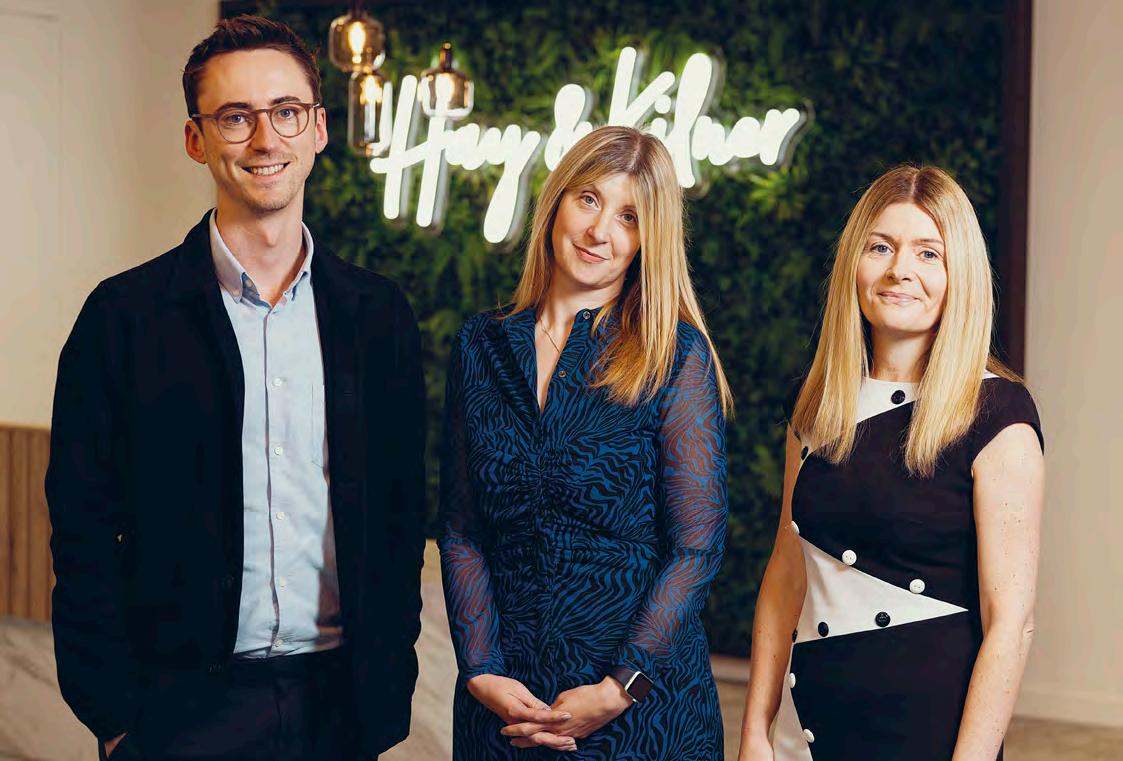
The
evolving world of employment law
The world of employment law is continually evolving, and Sarah and her team are at the forefront of these changes.
From the recent Employment Rights Bill, which will reshape employment law, including significant changes to unfair dismissal rights and fire and re-hire, it is clear the requirements on employers, and the potential risk of claims, will continue to increase.
Sarah provides tailored in-house training for clients to support managers and minimise the risk of tribunal claims, as well as leading the team’s HR corporate support work in relation to commercial projects and transactions.
The Hay & Kilner approach
Sarah says: “We understand your people are your greatest strength.
“We take the time to understand your organisation and culture, tailoring our approach to help you achieve your commercial goals.
“Our employment law team builds close relationships with businesses across various sectors, providing legal and commercial HR advice with a results-driven focus.
“Clients value our practical, common-sense approach, quick response times and ongoing support.
“We offer flexible fee options, allowing you to budget effectively while accessing expert legal advice.”
People and Culture Forum
Hay & Kilner’s People and Culture Forum provides an opportunity for senior HR professionals to network and discuss key topics, such as the role of emotional intelligence in workplace culture and the impact of artificial intelligence.
The most recent forums have covered workplace wellbeing and what it actually means in practice for HR professionals, and the future of diversity, equality and inclusion and how it’s evolving in the workplace.
Sarah adds: “Creating a sense of belonging, where people feel empowered to bring their whole selves to work, makes for a healthier and happier workforce, and is essential for employee wellbeing.
“It’s something we pride ourselves on at Hay & Kilner.”
Hay & Kilner
For more information about Hay & Kilner and the services it provides, visit the website at the top of this article or call 0191 232 8345.
In the latest instalment of a series exploring businesspeople’s lives beyond the workplace, Steven Hugill speaks to Jason Oakes, partnership director at Houghton-le-Spring-based PHS. Here, the former Newcastle Falcons player reflects on his professional rugby career, his passion for coaching the next generation and the sport’s lasting lessons that continue to shape his working life.
www.phshomesolutions.co.uk
LinkedIn:
Away from your role as partnership director, you previously coached junior teams at Durham City Rugby Football Club. What sparked your interest in nurturing the players of tomorrow?
Coaching was a natural step after I finished playing.
I’ve always believed in giving something back, and rugby has given me so much over the years.
My son started playing at four, and would always ask me to coach – from that point onwards, it has been one of the most rewarding things I’ve done.
Working with junior teams allowed me to stay connected to the game, but more importantly, it was a chance to help shape young players, not just in terms of skills on the field, but building confidence, discipline and teamwork.
Seeing their passion and energy reminded me why I fell in love with the sport in the first place.
What did you find most rewarding about working with youngsters?
The most rewarding part was watching their growth, not just as rugby players, but as people.
Rugby brings a lot of confidence to people at a young age, and really brings out personalities.
Rugby is also one of the only sports where lifetime friendships are forged, and to see this happen is amazing.
You realise you’re not just coaching a sport; you’re helping instil values that will stick with them for life.
As already highlighted, you spent a number of years playing rugby at a high level, representing England Counties before time in the professional ranks with Newcastle Falcons. Are there any standout moments that remain with you from those days?
Pulling on the England Counties jersey was a proud moment, representing not just myself but my club and community.
Playing semi-professional rugby at Otley back in the Championship and then transitioning to being a professional with Newcastle Falcons brought its own highlights, from the intensity of Premiership-level rugby and the camaraderie, to the big Friday night games under the lights.
But it’s often the smaller moments you remember most –the tough sessions that brought the squad closer, or games where we dug deep and came out on top when it really mattered.
Following your on-field career, you co-founded Oakes Energy Services, which now operates within PHS, the parent company of 0800 Repair and Oakes Energy Services. Are there any lessons from the rugby field you find yourself regularly sharing with your team in the workplace – are there parallels between building a winning rugby team and a successful business?
Definitely.
Rugby teaches you the importance of trust, communication and working towards a common goal, all of which translate directly into business.
We’ve always built a culture where everyone understands their role, supports each other and takes pride in the team’s success over individual accolades.
Whether it’s a project deadline or a matchday, the principles are the same: preparation, teamwork and resilience.
Your son has followed in your footsteps, currently playing in Newcastle Falcons’ academy. How does it feel watching him from the sidelines compared to being on the field?
It’s a completely different kind of nerves!
When you’re playing, you’re in control and you can do something to change the game.
Watching from the sidelines, you’re just hoping they’re enjoying it, learning and giving it their all.
I’m incredibly proud of him.
Seeing him follow his own path, putting in the work and wearing the jersey with pride is a special feeling.
Sport is renowned for its ability to bring people together. Has the rugby community been a valuable network beyond the pitch?
Without question.
The rugby community is built on respect, shared experiences and a sense of looking out for one another.
Whether it’s opportunities in business, support during tough times or just staying connected with old teammates, that network has been invaluable.
Rugby brings people together in a way that lasts well beyond the final whistle.
What advice would you give to young athletes thinking about life beyond sport?
Plan early and be open-minded.
Sport can be all-consuming, but it’s important to start thinking about what comes next, even while you’re still playing.
The discipline, work ethic and team mindset you develop as an athlete are massive assets in other walks of life.
Stay curious, build relationships and don’t be afraid to ask questions or try new things.
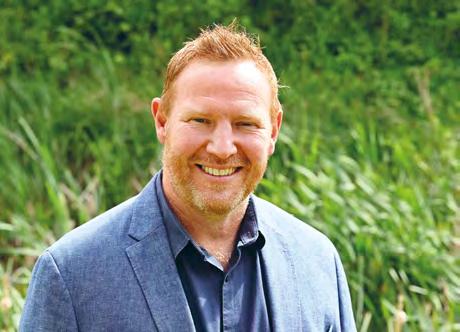
Leading the way in customer service
Northumbrian Water Group
www.nwl.co.uk/ @nwater_care
In an industry full of challenge, Northumbrian Water Group is swimming against the tide, earning generous customer feedback and industry accolades. Here, Dawn Creighton, head of customer strategy and experience, highlights some of the measures the company is taking to continue elevating service levels.

Pick up any newspaper or turn on the television, and you’ll find a lot being said about the water industry.
And not all of it is positive.
But here in the North East, the local water company is doing things differently.
Northumbrian Water isn’t just aiming to be good, it’s setting the standard for what great customer service looks like.
The company provides water and sewerage services to more than 2.7 million customers across the region, stretching all the way from the Scottish border in Northumberland down to parts of North Yorkshire.
That’s a big area to cover, and a lot of customers to keep happy.
But for employees at Northumbrian Water, it’s simple.
Creating an excellent customer experience isn’t the goal. It is the cultural norm.
Top marks
The company has just finished the 2024/2025 year in top spot for C-MeX (Customer Measure of Experience).
This respected accolade is the regulatory performance metric introduced by Ofwat, the economic regulator for the water industry in England and Wales.
It annually measures the quality of service
water companies provide to customers, with householders rating their experiences on a scale from zero to ten.
The higher the score, the better the performance.
And Northumbrian Water’s customers rated the company highly, propelling it right to the top of the charts and ahead of all other water companies.
Dawn Creighton, Northumbrian Water’s head of customer strategy and experience, says: “We’re officially the customer service champions of the water world – and we’re delighted.
“It’s an incredible achievement, and one that demonstrates the passion, dedication and pride our teams bring to customer service every day.
“It shows in every interaction we have with customers.”
Top for trust
It’s not just C-MeX, though.
According to the latest CCW Water Matters report, Northumbrian Water is also one of the most trusted water and sewerage companies.
The report is an annual survey conducted by the Consumer Council for Water (CCW) that captures household customers’ views on the services provided by water companies across England and Wales.
It published its results earlier this year, which showed the company was swimming against the tide.
While trust in the wider industry has taken a hit, Northumbrian Water’s customers are still saying they feel good about the services it provides, which led to an increased trust score.
It was voted the second most trusted water and sewerage company in the country, and ranked joint top for satisfaction with value for money of sewerage services.



Powered by people
None of this happens by accident.
Trust is hard-earned, especially in a sector under intense scrutiny, and Northumbrian Water’s success is the result of relentless focus, smart systems and a people-first culture.
Dawn says: “Customer experience is about every interaction that someone has with us –whether that’s how we answer the phone or how we handle a leak on a rainy weekday night.
“It is how we behave in our communities and how we support our customers when they need it most.
“One of our ambitious goals is to deliver world-class service and unrivalled customer experiences – getting things right first time, fast time, every time.
“That’s why we’ve built a strategy around what customers have told us matters most –the ‘what’ we need to do – and used KPMG Nunwood’s Six Pillars of Customer Experience Excellence as a delivery model for the ‘how’ we do it.
“These include personalisation, integrity, managing expectations, resolution, time and
effort, and empathy.
“And they aren’t buzzwords – they are embedded in everything we do.”
It all starts with people.
Northumbrian Water recruits differently, looking for people with a positive attitude and emotional intelligence.
And then it trains for skill.
As a member of the Institute of Customer Service (ICS), it is always at the leading edge of service research and insight, working with ICS to give its people the tools and confidence to deliver right-first-time experiences.
It also empowers them, regularly rewarding and recognising those that create memorable and value-added services.
On the digital front, it has made platforms easier to use and more accessible, recognising that more customers are online.
It has invested in new features so customers can self-serve whenever it suits them.
It has also made huge strides in supporting customers in vulnerable circumstances, adding nearly 45,000 households to its priority services
register last year alone and continuing to support those facing water poverty.
It isn’t just about hitting targets, though, it is about making a real difference and constantly learning to improve customer experience.
The water industry has work to do.
But Northumbrian Water is showing what is possible when you invest in your people and never lose sight of what matters most –customers.
Northumbrian Water Group
For more information about Northumbrian Water Group and the services it provides, visit the website at the top of this article.
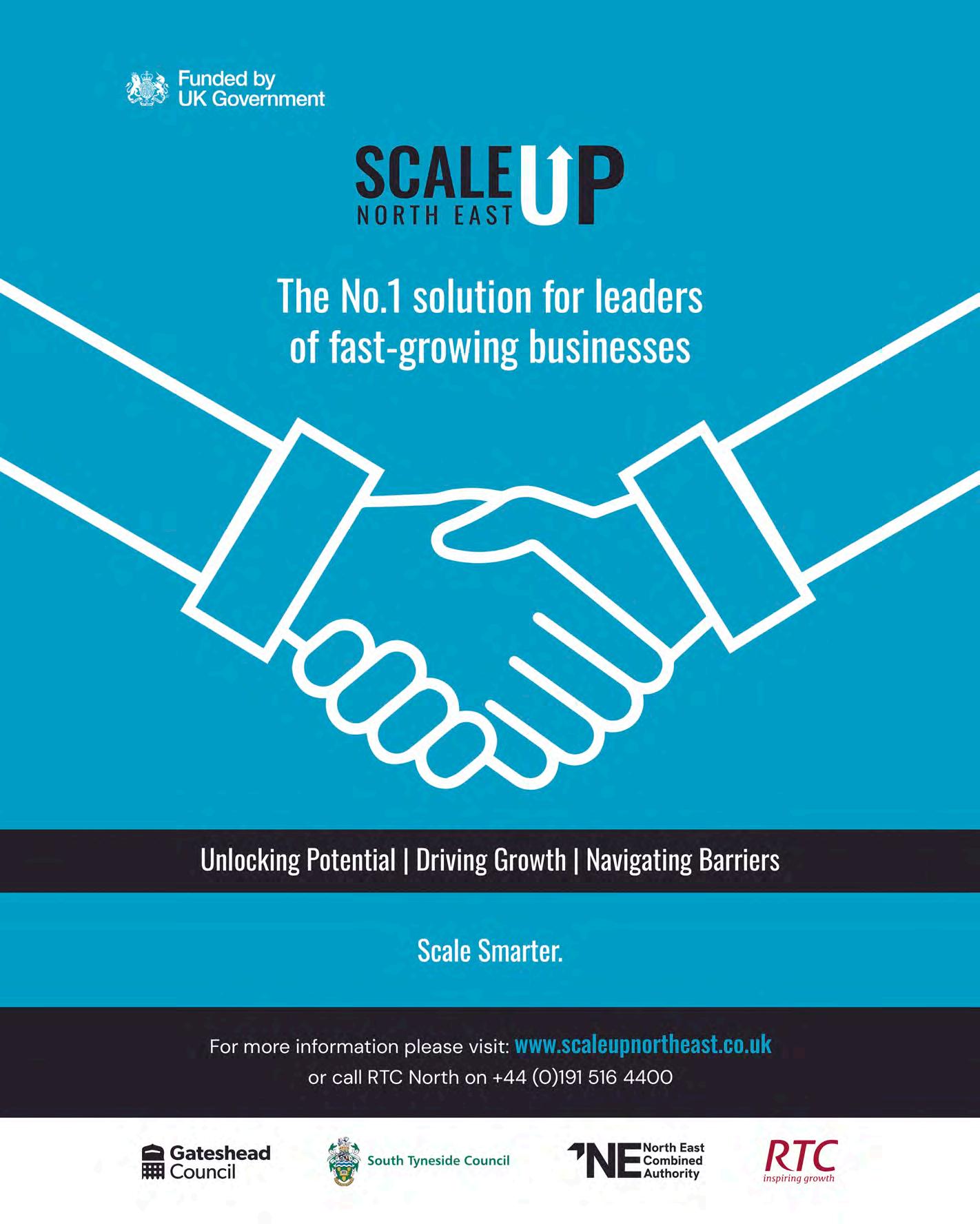

Dere Street Barristers opens second Newcastle office
Dere Street Barristers
www.derestreet.co.uk
LinkedIn: Dere Street Barristers
Dere Street Barristers has expanded its legal sector offer with the doubling of its Newcastle presence. Here, John Elvidge KC, head of chambers, highlights the significance of its second office and what it means for clients.
Dere Street Barristers, one of the largest chambers in the North East, has opened a second Newcastle office.
The Provincial House office complements existing chambers facilities in Newcastle, Middlesbrough and York.
The newly refurbished, modern office, based on Northumberland Street, is situated in the heart of Newcastle’s busy shopping and business district, and stands close to the civil, family and tribunal courts at Barras Bridge.
John Elvidge KC, head of chambers, says: “The people and businesses in the North East need access to high-quality, specialist legal services locally.
“Our investment in these new premises, so close to the Newcastle Civil & Family Courts and Tribunals Centre, demonstrates our confidence and our ongoing commitment to serving that demand.
“We look forward to welcoming all clients – old and new – to Provincial House.”
Dere Street Barristers’ new office features a welcoming reception area, a clerks’ room and a barristers’ work room.
It also includes a 60-seat seminar room, five conference rooms, a lounge and a kitchen.
The elegant new space offers an accessible, professional and inviting base for barristers and clients.
As with all Dere Street Barristers’ offices, it is equipped with the technology to seamlessly facilitate remote and in-person conferences, meetings, mediations and private hearings.
The Northumberland Street office complements Dere Street Barristers’ refurbished Newcastle Chambers on Broad Chare, based next to Newcastle Crown Court on the Quayside.
With four well-equipped and welcoming offices across the North Eastern Circuit, the chambers boasts a highly experienced team practising predominantly in family, civil and criminal law. They are renowned for the provision of high-quality specialist advice and service to a diverse range of clients.
Dere Street Barristers was formed in 2011, following the merger of Broad Chare Chambers and York Chambers.
Now with more than 100 barristers, including King’s Counsel, Dere Street Barristers is one of the largest sets on the North Eastern Circuit.
Nationally, Dere Street Barristers has gone from strength-to-strength, building an enviable reputation for unrivalled expertise and experience across all disciplines.

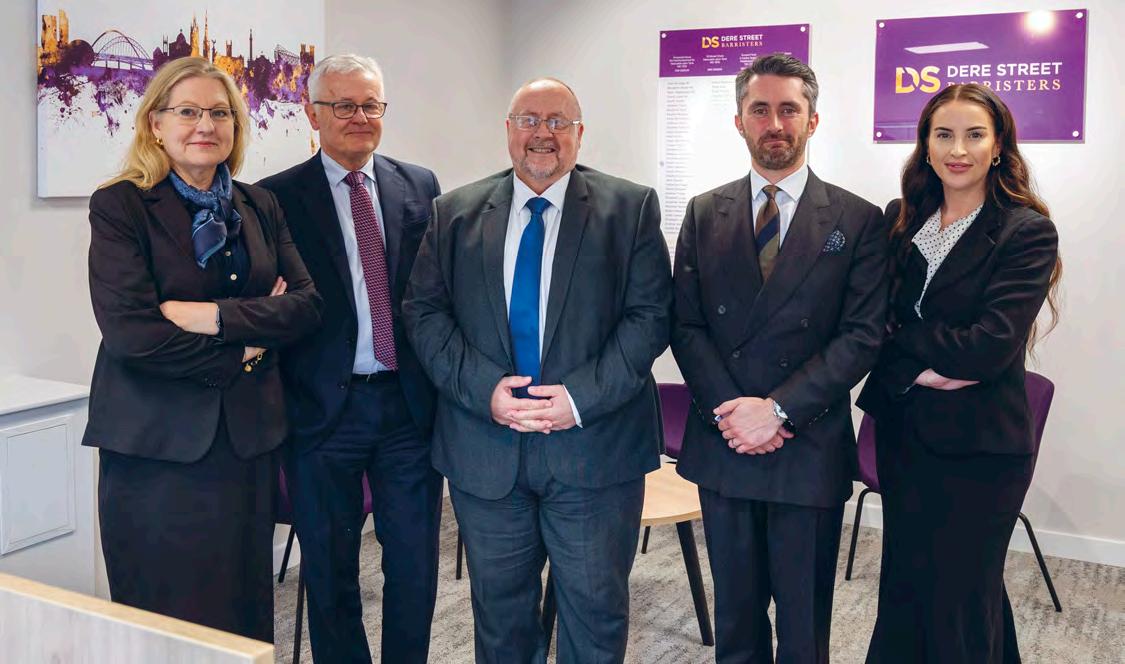
“Our investment in these new premises, so close to the Newcastle Civil & Family Courts and Tribunals Centre, demonstrates our confidence and our ongoing commitment to serving demand”
In addition to a well-established and thriving team of leading and junior counsel, the barristers are assisted by a large team of highlyexperienced clerks and staff.
Dere Street Barristers also recruits at least four new pupils annually, providing superb in-house training through a very rigorous yet supportive pupillage programme.
The programme is designed to ensure the continuation of excellence, quality of advocacy, advice and service.
A further, highly unique aspect of Dere Street Barristers is its charitable trust, established in 2018.
The trust contributes to a wide range of local community charities and projects, and is funded by the many barristers in chambers who choose to contribute one per cent of their gross earnings.
Alongside other charitable giving by the chambers, nearly £300,000 has been distributed by the trust alone.
Dere Street Barristers continues to expand its reputation and presence, both in the North East and nationally.
The barristers and staff are exceptionally well trained and supported by the experience and leadership of well-established and highly specialised practitioners, a significant number of whom are noted in the Legal 500 for their excellence and expertise in their respective practice areas.
Dere Street Barristers continues not only to fortify its reputation at the heart of the legal and wider community in the North East, but also as a distinctive and leading set of barristers at a national level.
Dere Street Barristers
For more information about Dere Street Barristers and the services it provides, visit the website at the top of this article or email clerks@derestreet.co.uk
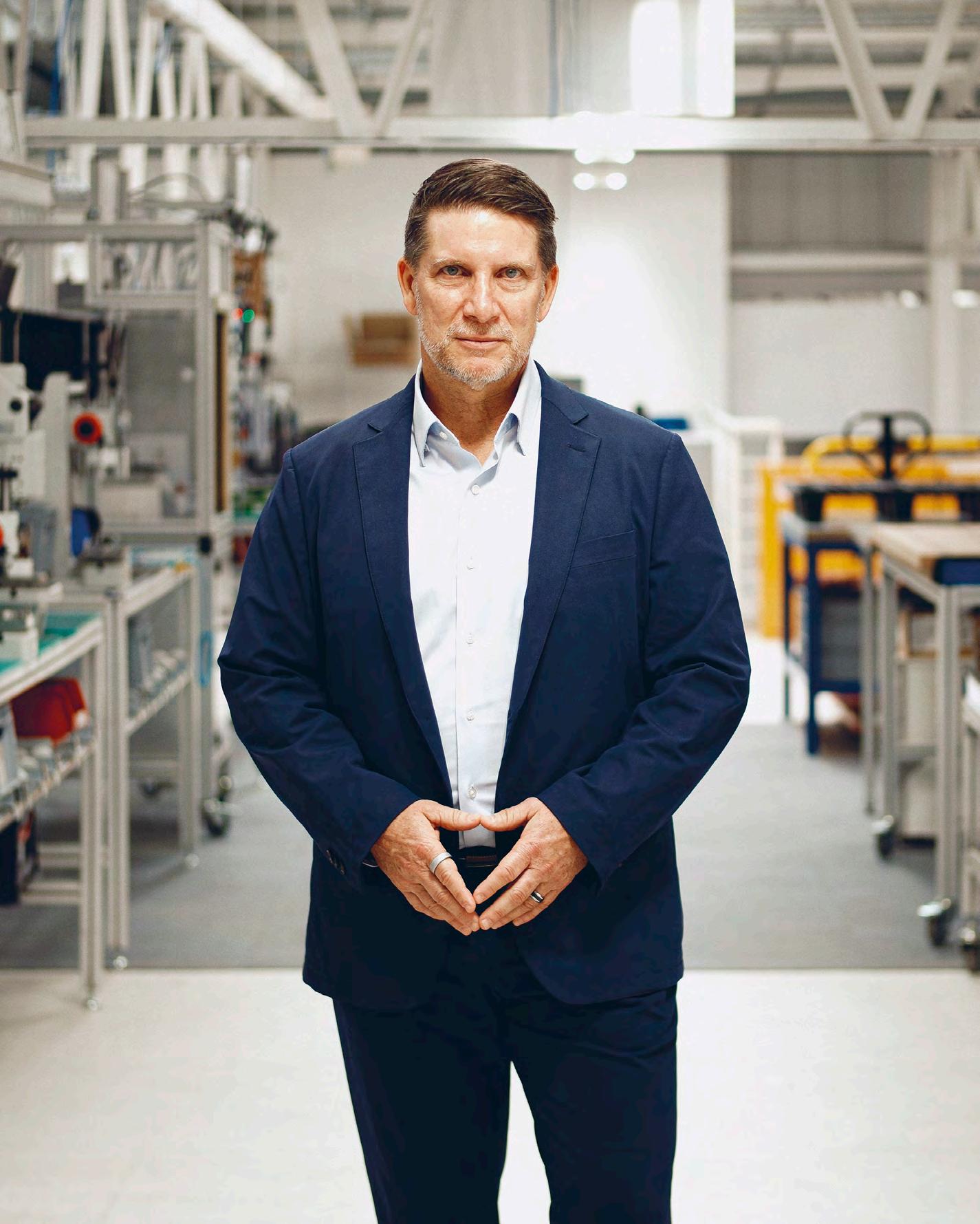
POWERING THE FUTURE
Steve Hornyak
www.turntide.com
LinkedIn: Turntide Technologies
Words by Colin Young
In the heart of Team Valley, technicians at Turntide Technologies have been hard at work developing the axial flux motor – a significant piece of kit transforming transport electrification across the world. Backed by the likes of Bill Gates and Robert Downey Jr, the business has invested £100 million in the North East as it leads the way in the new technology. Here, Colin Young meets chief executive Steve Hornyak to learn more about its work and why the North East was the obvious choice for the business’ expansion.

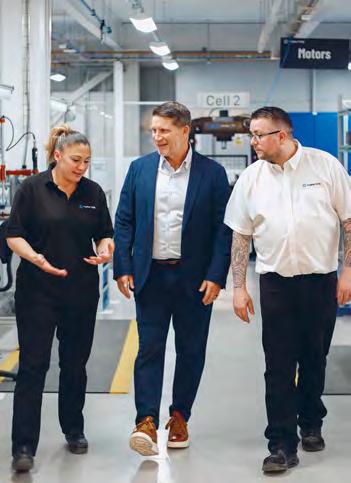
Steve Hornyak doesn’t have an office, a desk or a comfy chair, certainly not on his travels to Turntide Technologies’ headquarters in the North East.
Instead, when the president and chief executive flies in from California for his monthly visits to Turntide’s Gateshead base, he does everything on foot.
And when Steve and his Stateside-based executives paid a visit to the bright blue buildings of Turntide’s headquarters, on Team Valley Trading Estate, he was prepared for nearly a week on the move across the company’s three North East bases.
He says: “I’m not a sit-at-a-desk guy – I prefer to do the rounds and spend time with people.
“I’m out with them, in conference rooms and meetings, or with customers; I’m basically on foot the whole time.
“We’re consolidating production facilities at three solid places here for efficiency and effectiveness, to keep our costs down and be more competitive.
“And it’s good to get people in because a lot on my team haven’t seen or been here before, so to see them face-to-face with the team is awesome.
“It’s good for me to see it.
“That’s my management style; I’m a very open, collaborative and transparent leader.
“I’m a leader, not a manager; management sits behind desks and barks orders at people –leaders get out and get work done.
“And that’s what I’ve always done.”
Steve visits Turntide’s Team Valley base regularly, keeping a close eye on the company’s progress and innovations.
And since buying three of the region’s enterprises, geared up for the demands of vehicle electrification, there has been plenty of that.
Originating from the US, with some big-name backers, Turntide has invested more than £100 million in the region after completing deals for a trio of companies in Sunderland, Gateshead and Cramlington, which are each helping transform the transport industry with advances in decarbonisation technology.
Turntide has brought together – under one considerable North East roof – battery pack maker Hyperdrive Innovation; BorgWarner,
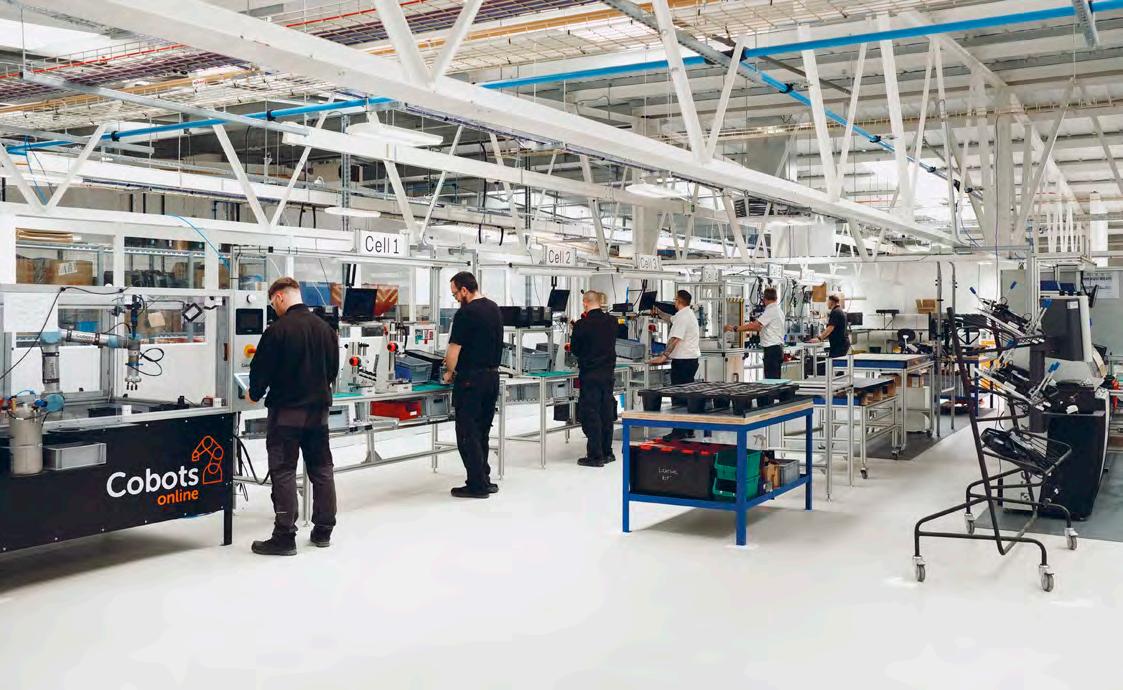
which comes with decades of experience in designing vehicle power electronics; and Avid Technology, known for designing power electronics and motors for vehicles, robots and other machinery.
To some, the North East may seem an unusual choice to base a multi-million-pound business geared to meet the demands of the electrification and hybridisation of every strand of transport.
But it wasn’t for Turntide. Or Steve.
He says: “The acquisition took place before I joined.
“I’ve only been on board for ten months, but I know what they were looking at.
“They found this little axial flux company that had fantastic technology, with more of a robust system acquired from BorgWarner, and then they had a battery company, all within a short distance of each other.
“Bringing together a concentration of similar companies in a geographic region that could create a platform made natural sense.
“You’ve got a strong engineering base in this region, and labour costs are reasonable
– I won’t use the word cheap, but they’re reasonable relative to the US, London or some other markets – and it’s a good geographic location.
“And we can ship anywhere; we’re taking this product globally.”
Steve joined Turntide as president and chief executive from electric commercial vehicle producer BrightDrop, a General Motors subsidiary, where he led a team which created the fastest-ever product to market for the business.
After founding his first start-up at 27, which he took to the stock market, he’s enjoyed a stellar career in technology as an executive in seven companies, raising more than £7 billion from public and private investors and leading two successful public market launches.
He knows innovation when he sees it, particularly in energy-efficient technologies, and established a strong network of investors and partners, including Amazon, the Bill Gatesbacked Breakthrough Energy Ventures and Robert Downey Jr’s Footprint Coalition, which all recognised the company’s commitment to low-carbon transition and sustainability.
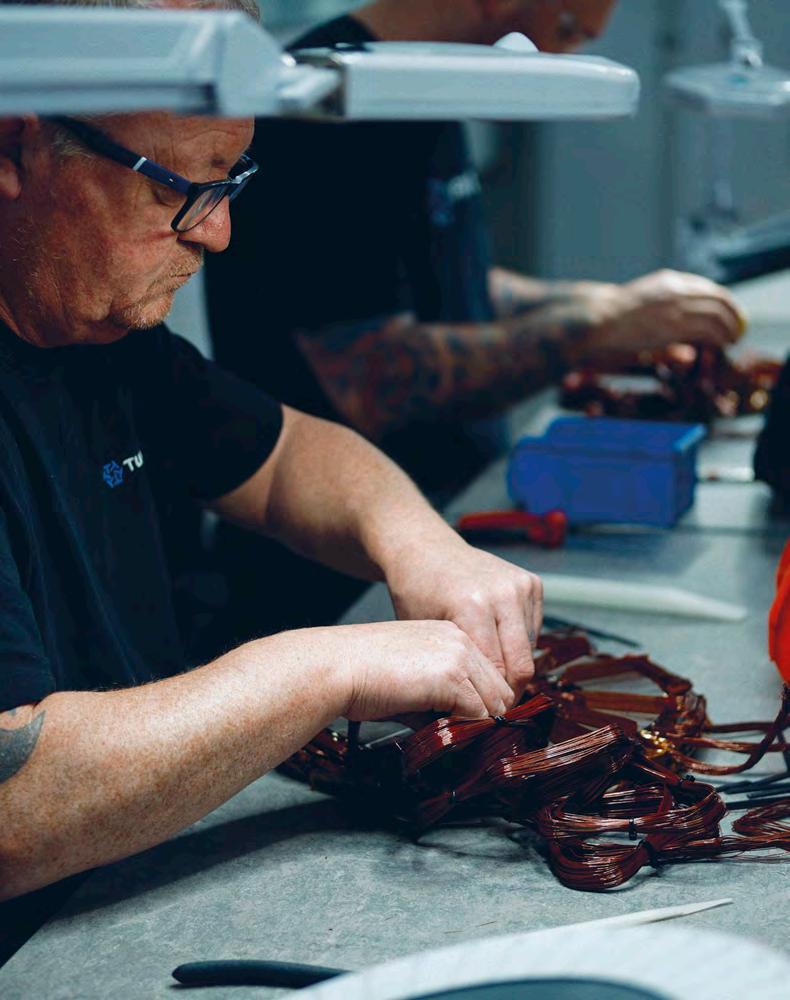
“Right now, we’re considered one of the top three vendors in the axial flux motor space, which is still a small market, but we’re optimising, designing and manufacturing a product for mass production”

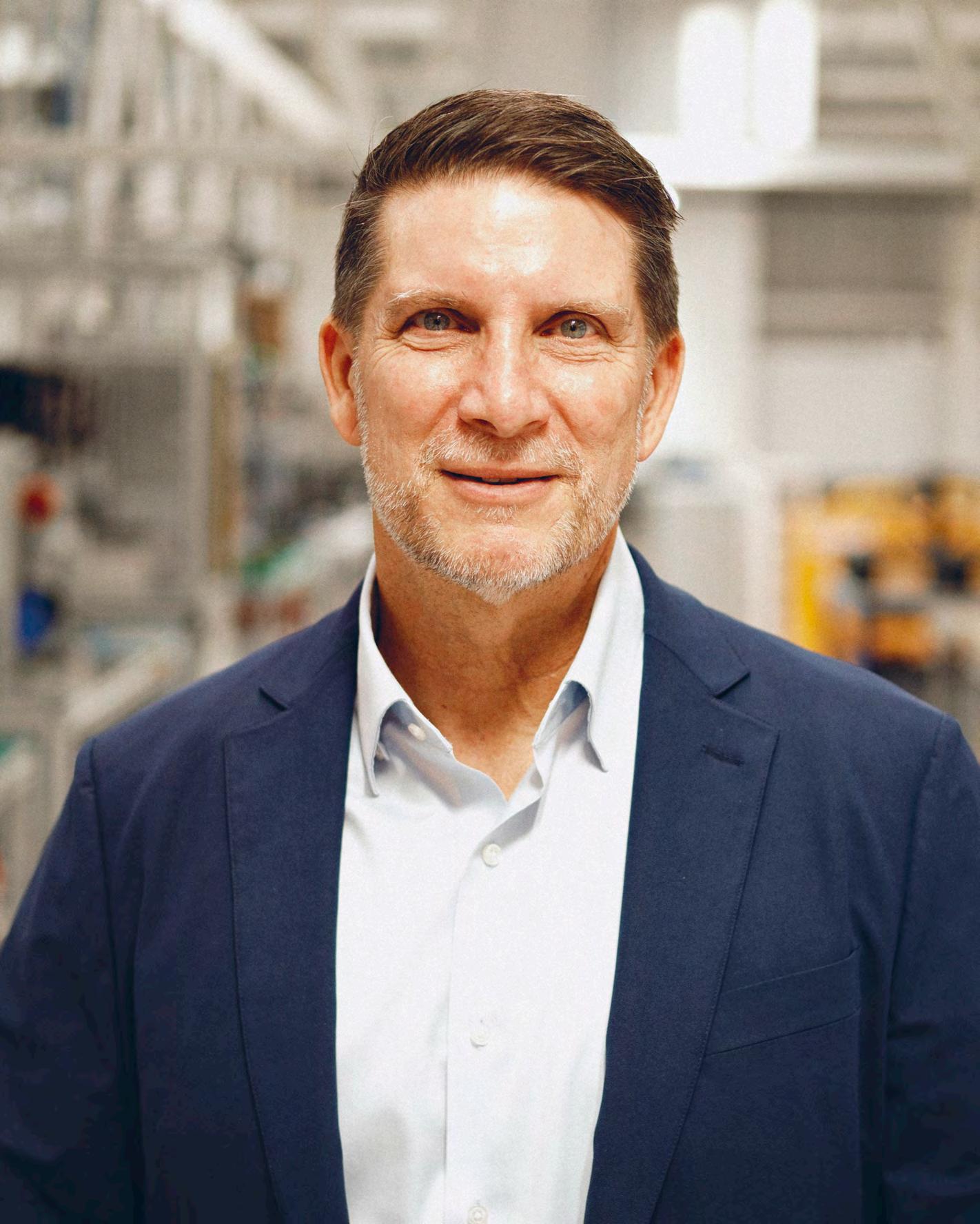
Hornyak Steve
The jewel in Turntide’s crown is the axial flux motor, a high torque density motor the company says offers revolutionary performance and sustainability in a wide variety of e-motor applications.
“Having been a senior executive at General Motors, I know the market trends,” says New Jersey-born Steve.
He adds: “I saw it as a huge opportunity to come into Turntide and create what should – or could be – the number one, two or three player in this space globally.
“Right now, we’re considered one of the top three vendors in the axial flux motor space, which is still a small market, but we’re optimising, designing and manufacturing a product for mass production.
“And we’re doing it in the North East.”
Visits to Turntide’s technical centre give Steve and his team the opportunity to see that innovative work in action, and how the axial flux motor is being adapted and readied for mass production.
Two men sit at a large white table in a confined glass-fronted laboratory, picking at the complex wiring attached to a motor.
It is painstakingly intricate work.
It is also the reason, says Steve, why Turntide made the North East home.
He says: “Everything will be based off some derivative version or augmentation of what they’re doing today.
“With the axial flux motors, we’ll wind up building different variations of it – next generation, smaller, bigger, faster, stronger.
“But that market is huge enough, and we’re staying focused on that.
“It’ll do very good for us.
“Power electronics, low voltage, high voltage – you’ve got a tonne of different variations on those products.
“I call it the brains, the blender and the batteries; those are the three things we do.
“I saw this as a tremendous challenge to get the company super-focused, to re-package and reposition it, and get very aggressive from a sales and marketing perspective.
“And I’ve been blessed that I’ve had people
follow me, work for me, from two to five different companies, who’ve joined me here because they know how to build businesses with me.”
The Turntide entourage also attended Newcastle United’s home win over Brentford earlier this year.
It was Steve’s first game at St James’ Park, but certainly not his introduction to the beautiful game.
The 50-year-old grew up playing ‘soccer’ in Princeton, New Jersey, among the strong Scottish immigrant community, eventually playing as a tough-tackling defender for Virginia Tech in the US leagues.
He was also a member of the US’ junior Olympics team, which toured Europe twice in the late 1970s – an introduction to football (as he knows it) and travel – which continues to take him across the world as president of Turntide.
He says: “I stayed in people’s homes and we played the local teams in their stadiums, showered and changed in their locker rooms, had meals with them afterwards, exchanged flags – we did all that.
“The first time, we got absolutely pummelled because we were 13, and there wasn’t as much contact allowed in the American way of playing; we were a little more, ‘foul, blow whistle, foul, blow whistle, foul, blow whistle – and no high kicks.
“We came over here and we were saying, ‘they’re fouling us’, and the ref would say, ‘no, no, not over here; that’s legal, get on with it’.
“The second time we came over, two years later, it was probably 70 or 80 per cent of the same squad.
“We knew what we were in for, and we did incredibly well.
“We lost the majority of matches the first time, but second time around we won the majority of our games.
“I love the game, I always have.
“At my high school, more people would come and watch soccer games than the football games, and I played all the time.
“I miss it.
“But when my mind knew what to do, and my body failed my mind, I told my wife, ‘it’s time to hang up my boots’.”
LAST WORD
Closing this edition of N magazine, Syd Snowball, founder and chair of Modrec International, which designs and sources luggage, holdalls, backpacks, business bags and travel accessories, talks about the firm’s expansion plans. Having originally been founded in London as a supplier of luxury indoor games such as backgammon and chess, the company relocated to Tyneside in the 1980s, and is now embarking on its first brand launch in 15 years.
The business recently launched A2B Luggage – Modrec International’s first new brand in 15 years. What prompted the move, and how significant a role will A2B Luggage play in future growth plans?
The launch of the A2B brand is a natural progression for us as we widen our scope in the travel, leather goods and accessories industries.
We’ve spent many years helping other brands execute their needs in this field.
We’ve been tremendously successful operating in a business-to-business environment when producing products for companies such as British Airways, Virgin Atlantic, Mercedes-Benz, BMW, Diners Club, Lotus and Amex.
While Modrec continues to be a major business-to-business player and supplier to many retailers, we have a deep understanding of creating our own brands too.
Gino Ferrari, for instance, occupies a specific niche in the market, whereas we know A2B, as the name suggests, works perfectly for a more contemporary traveller well used to making a number of domestic and overseas trips annually.
Without giving too much away, we are continuing to develop a stable of brands, which will create a unique offering in the business-to-business, business-to-consumer and direct-to-consumer markets.
The company celebrated its 40th anniversary last year. Across those four decades, the firm has navigated numerous bouts of travel market turbulence, not least the incredible challenges brought by the COVID-19 pandemic. How are you leveraging those experiences to shape future strategy?
Budget airline travel really took off post-millennium, and we were in a great position to capitalise.
From that point onwards, we’ve always been very comfortable with a consistently evolving market situation.
During COVID-19, we understood retail would have to take place online, and rapidly adapted our business accordingly.
As there was no travel, our luggage ranges naturally took a hit, but we still did tremendously well with traditional gift items like wallets and purses.
The experience of the pandemic means that A2B, and future brands we might choose to launch, will be equally relevant to the online sales channel and wholesale customers alike, with all the marketing, social media and PR support that today’s customer expects from a brand.
Headquartered in Newcastle, Modrec International has deep roots in the North East. How important is the region to the business, and in what ways does the area influence operations and the company’s broader outlook?
I’m a big believer that good, hard-working, flexible and loyal employees are the backbone of any successful company, and there are no finer set of people than those from the North East.
We have steadfastly maintained a family-oriented culture here, while still successfully expanding operations with bases in China, India and North America.
The North East has faced its challenges, but I firmly believe it is the ideal place to operate.
www.modrecinternational.com
LinkedIn: Modrec International Limited
